#Alignment Analysis
Explore tagged Tumblr posts
Text
"The Lion Has Its Own Historian:" Parallels Between Gorgo and Aglaea
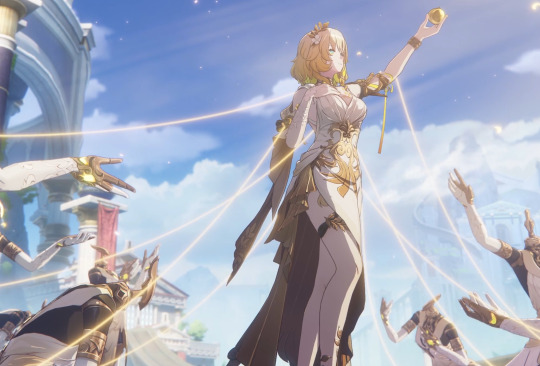
While re-reading Mydei's "As I've Written" stories recently, I was intrigued again by the (seemingly impossible) section in which Aglaea unknowingly echoed Gorgo's words to Mydei, and this led me down a rabbit hole of thought: The roles of Aglaea and Gorgo--not only in Mydei's life but also in the story overall--form some interesting parallels that are worth looking at in closer detail.
Seize the Means of Control
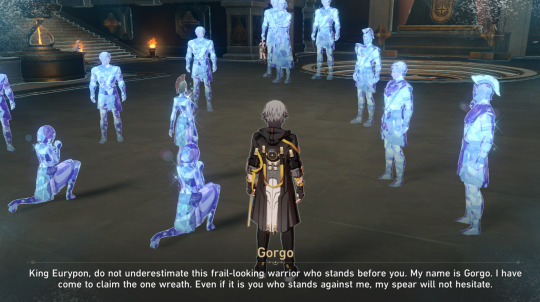
Gorgo's ascension to a position of authority was predicated on power--not only on her martial prowess, which was expected in her culture (i.e. slaying a lion with her bare hands), but through her courage to meet the existing symbol of authority, Eurypon, in single combat and not concede. In Kremnos, status is conferred and maintained through violence. Though on the surface Gorgo defies this belief, she ultimately remains an active participant in Kremnos's tradition of "might makes right" through the Kremnos Festival, reinforcing rather than rejecting her culture's military-centric social structure.
Although Gorgo originally took part in the Kremnos Festival with the intention of beating Eurypon and seizing the throne of Kremnos for herself (presumably because she thought she could rule better), she ultimately chooses to accept his continued leadership and become queen instead, even granting him an heir to cement his legacy. In this way, despite presumably wishing for a less wasteful (of life) philosophy for the Kremnoans, Gorgo becomes one of the foremost beneficiaries of the very mindset she opposes. She clearly wants to reduce the meaningless bloodshed in Kremnos--she strongly rejects the notion of patricide, for example--but she doesn't (at this point) reject the overall structures of the Kremnoan culture, including the belief that combat ability should determine who leads.
In short, her position of authority was achieved strictly through her ability to oppose her foes.

Despite coming from a wholly different culture, one which (ostensibly) values debate, diplomacy, and the rule of law as the primary tools for establishing status, Aglaea's rise to power was remarkably similar to Gorgo's. The game confirms that the prominence and influence of the Chrysos Heirs in Okhema is no lucky accident--instead, Aglaea has clawed her way to the top, fighting tooth and nail to establish herself as a figure of authority in the Holy City.
We're told she exerts her pressure both through economic means, amassing wealth via monopoly on resources such as Amphoreus's internet, and through literal bloodshed.

The story dances around it, but Star Rail's marketing embraces it: Aglaea represents not just the joy of love but also the "deadliness" of romance, the figure of power in Okhema "pulling the strings" and making others dance to the tune of her vision for the future. She basically rules the roost in the Holy City in large part because of her capacity for violence, because of the literal physical and political power she wields as a demigoddess and the leader of the strongest group of fighters on their entire planet.
This "silk concealing steel" behavior reflects not just how she approaches any who oppose her--the Trailblazer and Krateros, for example--but also how even the NPCs throughout Amphoreus view her:
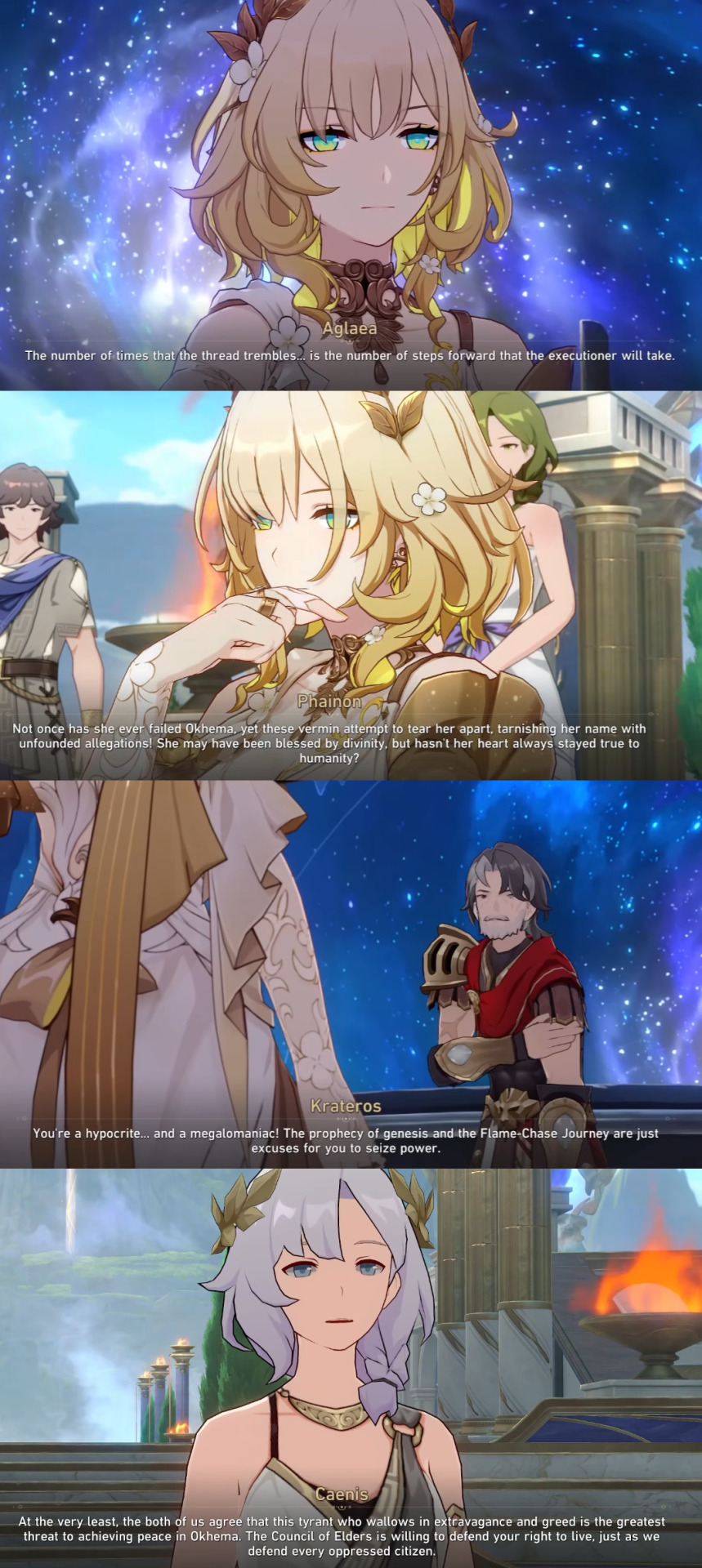
It's particularly Krateros's view of Aglaea which intrigues me, because the very same things he accuses her of are the things Castrum Kremnos is famous for (being warmongers, usurpers of power, etc.). By all rights, he should admire a "queen" such as Aglaea who rules by force and who is leading her people into the greatest war Amphoreus as ever known. And yet he and the rest of the Kremnoans seem to revile Aglaea for the very same things they saw as virtues in Gorgo.
The context is the key: Gorgo seizing power for herself is viewed as honorable and good because it happened in the context of Kremnos, while Aglaea's power struggle and military dominance occur within the so-claimed peaceful structure of Okhema's democratic society, casting her in the role of a "power-hungry tyrant" for the people living in Okhema, even those who should most appreciate her mindset.
Comparing Gorgo and Aglaea in this way highlights a key double standard in the way the Amphoreans react to women who rise to power, and makes it clear how thin the veneer of Okhema's "peace" really is. Stepping to the top rung of the social ladder through the threat of martial retaliation, Aglaea's battle against the Council and the Flame Chase's foes is no different from Gorgo tearing a lion apart with her bare hands, challenging a king, and taking her place at the top of Kremnos's hierarchy by seizing her weapon and making her stand. All that differs is how violence is received in their contrasting cultures, resulting in two diametrically opposed reactions from the "mere mortals" around them.
With Violence as Your Tool
I think it's important to emphasize that Aglaea and Gorgo also parallel each other not just in their rise to authority through physical power itself, but also in their stances on the necessity of that power: Both Aglaea and Gorgo (at least at first) view bloodshed as a necessary evil, an unpleasant facet of life that one must accept in order to achieve a goal. Violence, for both Gorgo and Aglaea, is a tool.
We see this clearly with Gorgo throughout her flashbacks, both in her initial fight with Eurypon (where she claims she would embrace the notion of death only so long as it is not "unnecessary") and in her other confrontations with Eurypon: Gorgo insists that the tradition of regicide must be broken and makes Eurypon promise not to lead Mydei to that path--yet later, she goes so far as to scold Eurypon when he shies away from his fate, essentially calling him a coward for fearing the prophecy that Mydei would one day kill him. "What prince of Kremnos hasn't killed his father?" she taunts, implying that, even as Gorgo fought to change the violent history of Kremnos, she still believed--at least at that moment--that refusing to face violence when it was foreordained made Eurypon a weak and unfit ruler.

However, we ultimately see this stance change. In Mydei's dream of training with his mother, Gorgo reveals that nearly losing Mydei completely changed her perspective on Kremnos's beliefs, finally killing any faith she had in their system of rule and their constant pursuit of Strife for strife's sake. She rejects the notion of combat being the ultimate test of a person's worth, explicitly casts aside her title and role as queen of Kremnos, and embraces a kinder identity as strictly "Mydei's mother." This is a crisis of faith brought on by experiencing the impacts of Kremnos's faith firsthand--by being forced to experience grievous loss, Gorgo is implied to have grown as a person, from one who is willing to accept violence as a tool to get ahead, into one who solely values peace.
These views, too, mirror Aglaea's pursuit of the Flame Chase Journey and her "hidden" feelings toward its necessary loss. We know already that Aglaea views the threat of violence as her go-to "means to an end" when it comes to achieving the Chrysos Heirs' goals.

She is not at all above putting people into harm's way to pursue the prophecy, such as letting Phainon take the Strife trial even knowing that he would fail, and she tells us players over and over again that her own humanity has nearly vanished, claiming that she now no longer has sufficient empathy for humankind to be swayed away from the path of Era Nova.

This is clearly not true (given how deeply she cares for Tribbie, how kind she is to Castorice, and how unwilling she is to actually bring any harm to Anaxa), but Aglaea insists on this emotionless illusion likely because it makes it easier to tolerate the cruelty required to continue pursuing her goal--she needs it to be true that the last of her humanity has already waned, because this is what makes it easier to accept that the Flame Chase Journey is a journey of "loss," one that is fueled by bloodshed.
It is an unfortunate truth of the prophecy that people will die in pursuit of the dream, that capturing all the coreflames and pushing the world forcibly into its next cycle will cost lives and require cold, rational decisions that will crush people's happiness and freedom. Aglaea cannot hesitate, cannot waver, cannot choose kindness over action.
But, like Gorgo, we know that accepting violence as a tool does not mean that the person wielding the tool is always happy to do so. As Gorgo loses her genuine faith in Kremnos's beliefs and begins to view training Mydei for war as nothing more than a rote requirement, devoid of meaning, Aglaea too struggles to uphold her emotionless facade, a protective cocoon whose cracks reveal the enormous weight she is bearing and how deeply the inhumanity of her own decisions wounds her.
We see this clearly in her character stories, where the actions and then later loss of her maid completely reshape her definition of "beauty":
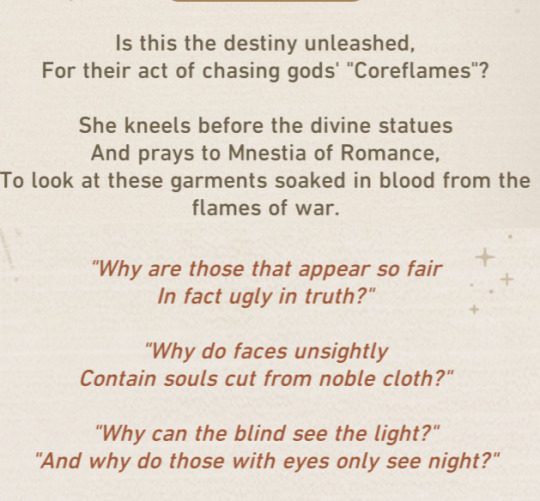
And we also see it very clearly in her behavior toward Anaxa, where she hesitates at the crucial moment, unable to commit to the course of action that she herself set in motion:

Like Gorgo who longs for a softer world where she can simply be Mydei's mother, Aglaea too (no matter how much she claims) has not lost the part of herself that cares not only for the people closest to her but even for the innocents of the world, the boy who wants to bring his sister something beautiful, the girl who shares her bracelet...

Her nature, no matter how much of it has worn away, is at its core humble and kind--reviling the pain of others.
It's this fundamental conflict between love and what must be done that lends both Gorgo and Aglaea their depth as characters, that grants them both an air of nobility, in the way that everyone good who suffers is noble. Being forced to cause harm without a desire to do so creates quintessentially contradictory characters, making the audience privy to both their external mettle and their internal hesitation, easily humanizing both of them. Aglaea and Gorgo are virtuous women whose cruelty is justified for the greater good. Yet in watching both of them struggle under the immense pressure of that cruelty, we recognize the inherent evil of a world that forces kind-hearted people into positions where bloodshed is their only path forward.
Both Aglaea and Gorgo are not women who normally hesitate to seize the tools available to them, or the kind of women who will shy away from wielding their strongest weapon--the threat of death--with impunity. The reaction to female characters who are willing to exert this kind of power over others (including over the men in their lives) both in-game and in the fandom (where Aglaea in particular is treated poorly for her "coldness") demonstrates how unique this particular type of female character still is, and suggests interesting overall power dynamics in Amphoreus that privilege women willing to utilize violence even above men who choose the same route, despite the strong patriarchal bent one might expect of a story with ancient Greece as its primary influence.
Mydei is not the son of Eurypon, but explicitly and always "the son of Gorgo" even in flashbacks where Eurypon is still alive; in Okhema, both the Chrysos Heirs and the Council appear to be primarily directed by women (Caenis occupies the more visible role of Aglaea's opponent than Lygus does), with all of Okhema's demigods (including Cipher) being female. Gorgo's violence is regarded as honorable; Aglaea is met with disapproval from her peace-loving society but no one ever actually dares to stop her. Perhaps Krateros comes closest, by defying Aglaea's will and entering the Strife trial without her permission, but even he ultimately has to be rescued from Aglaea's clutches by Mydei, who explicitly invokes his mother's name to ensure Krateros's safety. Say it with me: The male character with the highest social status in all of Amphoreus has to rely on the power and reputation of his mother to rescue another man from a powerful woman. Amphoreus really said "Ladies first." ���

Anaxa's reactions to Aglaea are humorous but are also a perfect example of this overall social structure in Amphoreus which assumes strong women in power have an automatic degree of legitimacy because they are willing to seize violence as their means, despite violence being, in real-world cultures at least, stereotypically the domain of men. In 3.1, Anaxa simply accepts it as a given that he will become Aglaea's prisoner and that she will be able to do whatever she wants to him, because nothing in Okhema's social, political, or military structures would enable him to genuinely oppose her (if he even wanted to).

Even in his (sort of) fake-out "siding with the Council" phase, all Anaxa does is move himself from the grasp of one powerful woman to the next, shifting from being Aglaea's prisoner to Caenis's ace. Cerces even has an entire voiceline where she points out word-for-word that Anaxa is functionally just moving from one woman's cage to the next. Caenis in particular seems to view Anaxa as an object, a biting dog she can keep on a leash until she sics him on her enemy. Anaxa obviously is not so easily manipulated, but Caenis's threat about karma eventually comes true, and he nevertheless suffers the final wrath of the Holy City's society, being judged more harshly than anyone else for his seeming unwillingness to submit to the power of either woman in control of Okhema.
Both literally and thematically, the game tells us players that Aglaea and Gorgo are courageous and effective leaders because they live by the blade, because they are willing to harden their hearts and do whatever it takes, whether that means taking another's life--or their own.
To Usher in a New Era
Of course what really distinguishes both Gorgo and Aglaea's willingness to cause harm from malevolent forces in Amphoreus is their ultimate intent. Although both women are willing to do whatever it takes, they do so only in service to a greater purpose, one that they believe will better their world. In this way, Amphoreus's writers reinforce the underlying impression in Amphoreus's plot that women are more trustworthy and reliable leaders than their corresponding male counterparts. Slight side note on this, but it's kind of funny just how consistent this is--even "outside" of Amphoreus, Welt and Sunday had to turn to Herta to save the day, while inside Amphoreus, Trailblazer is still relying on Acheron's advice to get them through. (When you cater to the incels so hard you somehow loop back around into writing staunchly feminist plotlines...)
The message, repeated and unsubtle, is that there is a link between women's leadership and righteousness, with both Gorgo and Aglaea representing an idealistic desire for a better future for Kremnos and Amphoreus as a whole--one by opposing fate and the other by enforcing it.
Both Gorgo and Aglaea face prophecies that promise to reshape the world as they know it, prophecies which require them to make decisions that will ultimately cost them their lives in a desperate bid to influence history toward the best path. Gorgo rejects the prophecy she is given, determined to protect Mydei despite the destruction the omens claim he will bring to Castrum Kremnos.
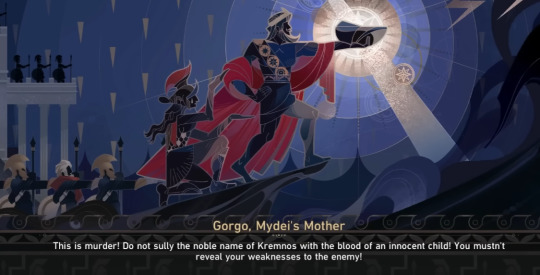
Because of the players' predilections for Mydei, this choice to reject fate paints Gorgo as a heroine, an unselfish and moral person who will choose the life of an innocent child over she own safety. Her willingness to fight to the death to prevent Eurypon's atrocity against their son flies in the face of fate itself, attempting to stop an inevitable, self-fulfilling prophecy.
And, in fact, the game even teases us with the idea: What would Kremnos have been like if Gorgo succeeded? When Mydei returns to Kremnos, he either "envisions" or actually experiences (via timelines bleeding into each other), a seemingly parallel universe where Gorgo succeeded in saving him from the Sea of Souls, and where she clearly rallied the people of Kremnos to her cause. The Kremnos we see in that vision is entirely different from Eurypon's:

The people are happy, rejoicing and at ease, talking about pomegranates and writing and playing games with kids, while the sun paints the whole city in a soft and gleaming gold.
Contrast that with the Kremnos that Trailblazer and Castorice find when they travel back into the past where Eurypon betrayed his wife and left Mydei in the sea:
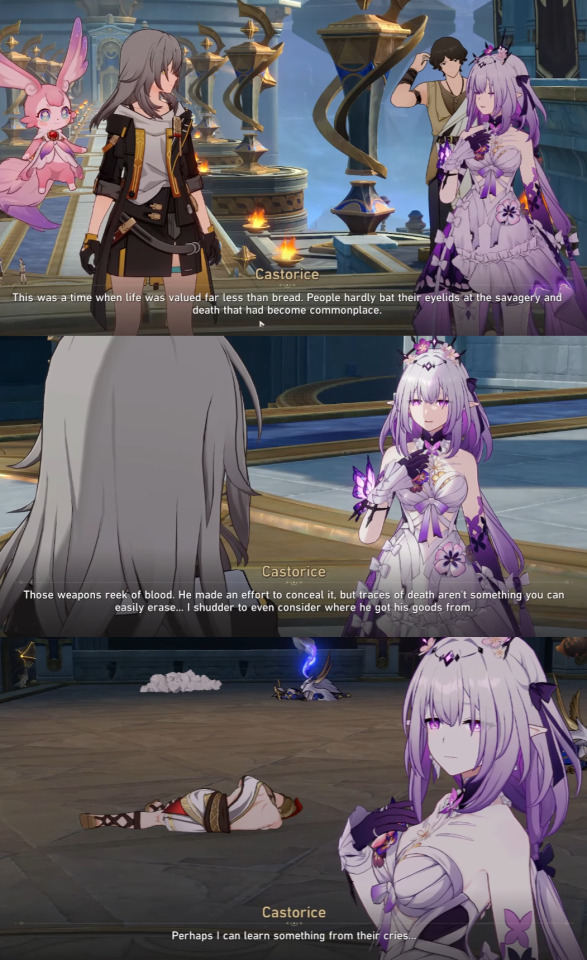
In the seemingly alternate timeline where Gorgo lives long enough to raise Mydei, the Kremnos we're presented with... looks a lot like Okhema. Looks a lot like the peaceful, idyllic Holy City where children frolic in the streets and the people are still full of light and life. By defying fate, we are shown (at least in some fragment of Amphoreus's timeline) that Gorgo achieves what she had longed for in Kremnos from the start, creating a better, gentler future for the people, prosperous and free of the cycle of Strife and meaningless violence that had plagued their kingdom for thousands of years. In this way, we can say that, for that lost timeline at least, Gorgo essentially achieved the Era Nova for Kremnos, ushering in a time of peace for her people. What Aglaea seeks, the game shows us that Gorgo was capable of achieving.
Conversely, Aglaea's path forward involves taking the complete opposite road: Rather than rejecting fate to create a better future, Aglaea seeks to embrace it. She has fully invested herself and her resources in the prophecy of the Flame Chase. She has to, because if there's no Era Nova to look forward to, then there's no hope at all for Amphoreus, and how can it be that something so beautiful is doomed to total destruction? If the Flame Chase Journey will end in a new start, if someone--anyone--will get to live to see the world born anew, then every sacrifice, every burden, every agony will have been worth it.
By embracing her prophesied fate instead of rejecting it, Aglaea is taking the same decisive stand as Gorgo, seizing the future of her world in her own hands and forcing Amphoreus along the path toward what she believes will definitely be a brighter future.
Not only does the description of Era Nova match the idyllic Castrum Kremnos we see under Gorgo's likely rule, but even the moments where both women truly make their stand and reckon with fate reflect each other as well: Gorgo demands her fellow Kremnoans stand with her, hoping they will see the wickedness of Eurypon's decision and reject blind faith in the prophecy they've been given. With her own strength, if even just Krateros alone had stood with her, she easily would have been able to push back against Eurypon's scheme. She lays out her vision for a different future, rejects the notions of the past, and is met with silence.
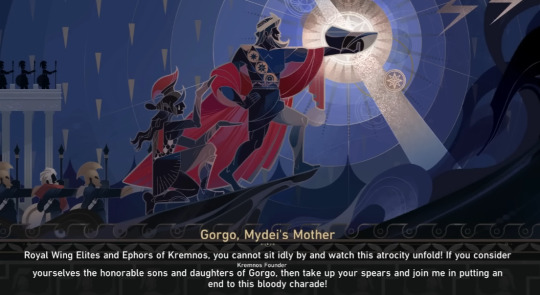
Meanwhile, Aglaea faces the Council of Elders in Okhema, where the decision about the Flame Chase Journey hangs in the balance, waiting on the final vote of a single person to join up with her cause. Just like Gorgo, the alignment of even one person to Aglaea's cause will make proof of her righteousness, prove the she's right. Aglaea lays down the gauntlet, demands the loyalty of her allies--and her leadership and vision are rewarded when Anaxa joins up with the cause, tipping the literal balance of the scales towards the new era Aglaea believes her efforts will bring to fruition.
(In essence, at the end of 3.2, we get to watch Anaxa do exactly what Krateros failed to--stand on the side of the woman who wields justice.)
Ultimately, through they do it through diametrically opposite paths--rejecting and embracing prophecy, respectively--both women are characterized by their drive to create change, their refusal to accept a quiet descent into cruelty and darkness. Both take a stand, outlining their vision for the right way to go on, for a better, softer, brighter world, seeking the loyalty of comrades to legitimize their causes, and--failing that--willing to make the ultimate sacrifice of themselves to further their truly noble causes.
The strength of both women lies not just in their martial prowess, but in their unwavering dedication to a just cause, no matter the cost to themselves.

Generational Influence
What actually started me off on this whole look at Gorgo and Aglaea as thematic parallels was Mydei's scenes with Aglaea, particularly how he clearly considers her a role model for ideal leadership. While I won't go so far as to say Aglaea perceives herself filling any sort of maternal role for Mydei, I think the connection is obvious on Mydei's end: Having never gotten the chance to truly meet his mother, Mydei is almost certainly projecting "the leader my mother would have been" onto Aglaea. (Or perhaps we should say the opposite: The empty spaces in Mydei's mind when he thinks of "Gorgo" are sutured closed with Aglaea's golden filigree.)
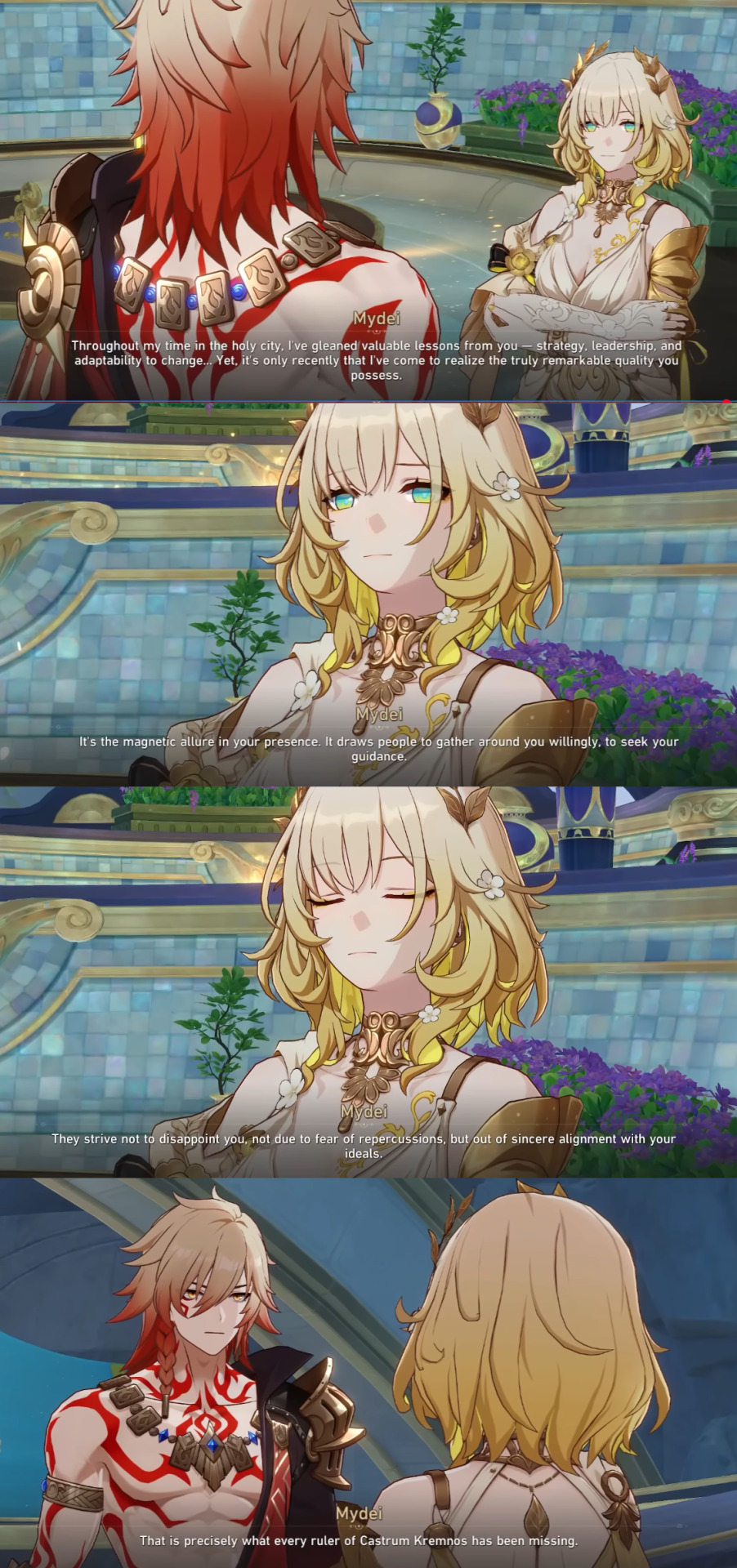
Does this sort of praise sound a bit familiar? It ought to, because this is how Krateros describes Gorgo:

Both women are characterized by their ability to move people's hearts, to inspire hope, and to model ideal strategy for others.
So how could Mydei do anything but link Aglaea's leadership with the life he imagines his mother would have led if she had had the chance to rule Kremnos?
Consider the entire situation from Mydei's perspective: His people have just been (forcibly) rescued from an insane king whose true downfall began with his betrayal of wife, their nation's one genuinely noble leader. If Gorgo had been their ruler, none of this suffering would ever have happened. Fleeing the madness and death Nikador is bringing to Kremnos, the entire surviving host of his people migrate to the "Holy City," the (supposed) last bastion of light and peace and happiness in Amphoreus--which is effectively ruled by a woman so powerful that she knows and sees all.
Seemingly effortlessly, she commands respect and fealty, marshaling her forces to do battle with the might of her own sword, while fighting to maintain the very same values Mydei's mother wanted to bring to her own nation. While being unafraid of bloodshed, she treasures life more than anything else. She's honest, direct, and unflinching, but still, despite everything, kind and dedicated to protecting the world she loves.
Mydei doesn't know his mother but there she is. There's the "queen" that his mother should have had the chance to be. There is the leader that Kremnos needed. There is the powerful woman whose dream for the future could have single-handedly changed the course of fate.
Clearly, for lack of personal experience, the Gorgo in Mydei's mind is less a real person and much more an idealized figure. His only direct knowledge of her comes from one "dream," where she tells him that he's more important than the world to her (undoubtedly leaving Mydei to grapple with the question of whether that is something she truly felt or something he just wishes to be true, by the way). Mydei's only other frame of reference for his mother is Krateros's blind veneration, with Krateros constantly holding Gorgo up as the standard Mydei should meet.

Gorgo is clearly on an achingly high pedestal for Mydei. He shaped his entire youth around the need to avenge her, and then he shaped his entire adult ideology around her vision for Kremnos. In "our" timeline, Gorgo may not have lived to create the change she hoped for, but her goal was ultimately achieved nonetheless, through the inter-generational influence her memory had over Mydei. It was Gorgo's hatred of wasteful bloodshed that helped Mydei to hate it too. It was Gorgo's desire to change Kremnos's traditions that led Mydei to consider tearing down its dynasty. It's his mother's gentle love for her people that echoes in Mydei's same affection.
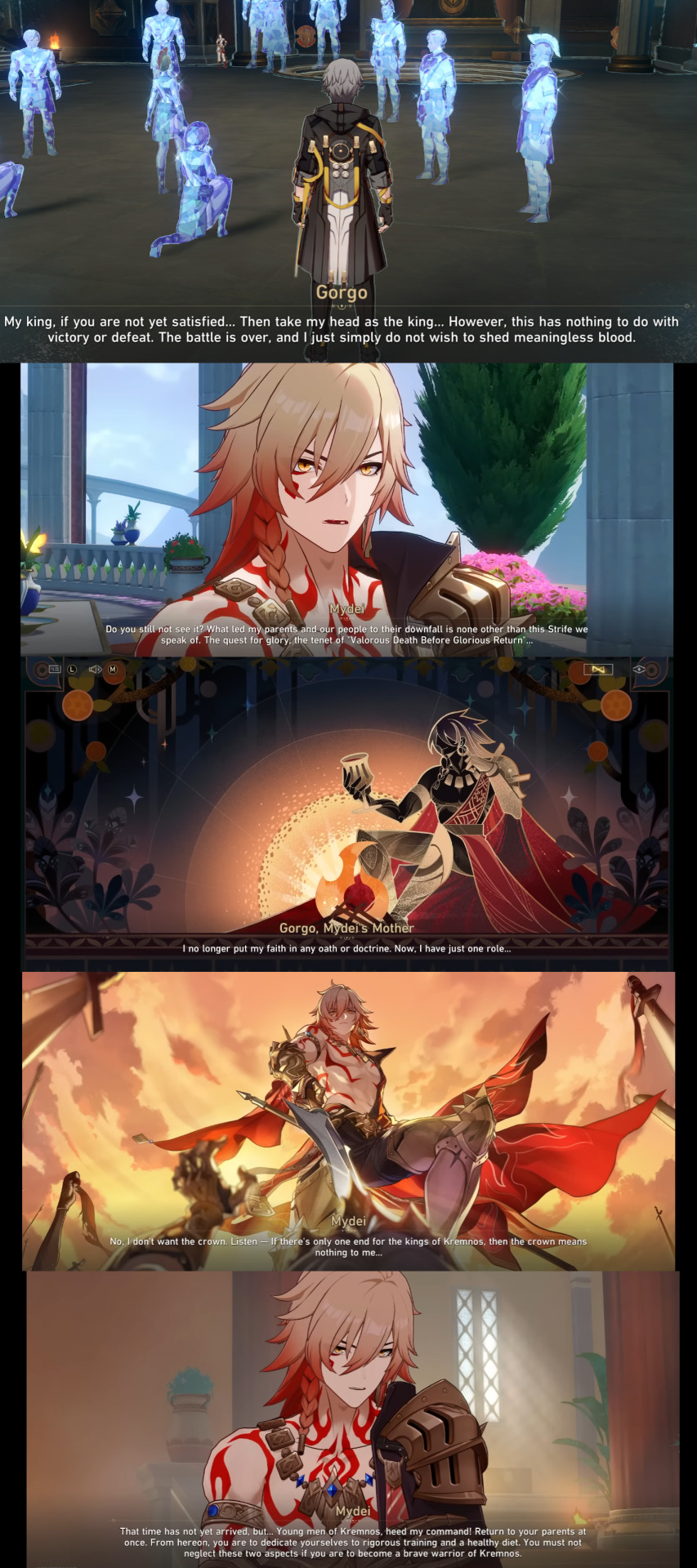
And through Aglaea, all those views and lessons were enforced. Before joining up with the Flame Chase Journey, the game tells us that Mydei's life was effectively still a hellscape even when he had his friends: They wandered the land with nowhere to call home and were attacked by (or themselves attacked) everyone they met, engaging in endless violence just to keep existing, while he watched his companions be brutally murdered one by one. At the risk of extreme understatement: Mydei was not living the life his mother wanted for him.
After joining the Flame Chase Journey, Mydei becomes one of the "heroes" who dedicates himself to protecting innocents and serving as a guardian; he finds a cause, does his best to create a new home for his people, and works to reshape their views towards the beliefs his mother espoused. Like Gorgo putting down her weapon and taking up the role of "just your mother," Mydei gets to (temporarily, briefly) let down his guard and live as just a person, cooking sweets, roleplaying with kids, and cuddling with chimeras.
He inches closer to the dream of finding meaning in finding peace.
And if it was Gorgo who inspired those choices, then it was Aglaea who made them possible--Aglaea who accepted the Kremnoan Detachment into Okhema, Aglaea who literally put aside her fear of Mydei to accept him as a fellow Chrysos Heir, Aglaea who guided him, Aglaea who modeled transformational leadership for him, Aglaea who gave him the final (if forceful) push he needed to commit to changing his people's future, destroying the bloodstained Kremnos of the past. In all his struggles to move forward, the threads of Aglaea and Gorgo's mirrored ideology lead Mydei through the labyrinth of uncertainty.
All things considered, Gorgo might actually be the character with the single most significant impact on Amphoreus's current plot other than the Trailblazer, because the guidance and beliefs she instilled in Mydei will live much longer than Gorgo and even Aglaea herself--may even live on through the end of the world and the rebirth of all of Amphoreus, because it is her exact ideology that becomes the backbone of Mydei's life advice to Castorice. When Castorice reveals their future, telling him the demigods of today's Amphoreus will become the titans of the new cycle, Mydei looks her in the eye and tells her the exact thing he learned from his mother and Aglaea:

Don't accept defeat--defy despair with everything you have and weave the future with your own two hands.
Perhaps nowhere do we see the parallels between Gorgo and Aglaea more clearly than in the "As I've Written" chapter, where we are told that what ultimately swayed Mydei's decision to join the Flame Chase Journey was when, completely without knowing it, Aglaea spoke the exact same words as his mother.
Though the organization of "As I've Written" is often unclear, making it difficult to determine which passages are actually linked to each other and which are entirely separate, I'm going to personally interpret the quote included in Mydei's third chapter as that special sentence once spoken by both Gorgo and Aglaea:
"The lion has its own historian, and the history of the hunt should not be held by the hunter alone."
Putting aside that all of this is completely impossible in the timeline as we know it (Mydei has no way of remembering the sentences his mother might have spoken to him, and none of the sentences in any flashbacks or her letter to him have anything to do with lions or historians), if this is the line echoed by both women, it is an obviously poignant phrase that would immediately signify to Mydei that Aglaea's ideology matches his mother's.
Although the English translation of "As I've Written" leaves A LOT to be desired (sometimes to the point of being entirely incomprehensible; I legitimately have no idea who okayed those translations, rife as they are with just straight up grammar errors lol), the origin of this phrase is unmistakable. It comes from the African proverb that is normally translated as:
"Until the lion has its own historian, the history of the hunt will always glorify the hunter."
Essentially, "History is written by the victors."
If we take the English translation seriously, what Aglaea and Gorgo would have been saying is that "the defeated" (which, by the way, is symbolized by the lion repeatedly in Kremnos's history) should have their own historian, and that no one should get to speak for them. That is, of course, that no one should get to speak for Mydei except himself--that he should take charge of his own destiny and write his own history into the books.
Krateros repeatedly insists that Mydei is the hunter, the one who should be controlling the whole hunting ground:
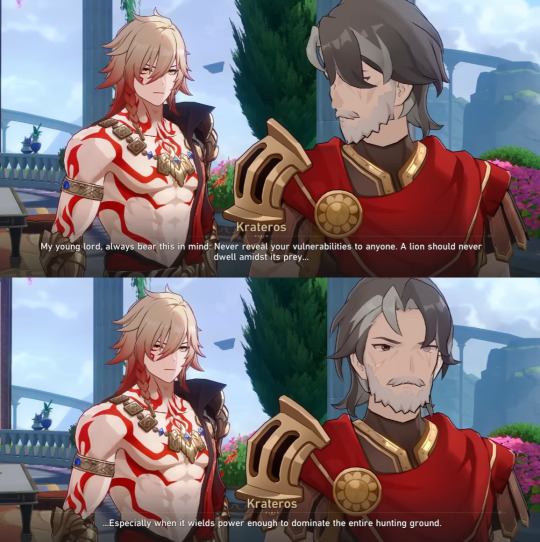
But Aglaea sees through Mydei in the first moment of meeting him--sees that he's not the victor but the victim, not the Kremnoan king-to-be but the "wandering lion" who is at risk of being slaughtered on the altar of Kremnos's glory. Kremnos's history is not the "hunting lion"--it's the lion hunt. Gorgo the founder killed the lion, Gorgo the mother killed the lion... So where does that leave Mydei, the symbolic lion?
This line is saying, Aglaea and Gorgo would both have been saying: I see you. I see that there's an entire unspoken legacy weighing on your shoulders, a horror you're fleeing from like wounded prey, a fierce desire in you to refuse the tale this world is writing for you. And in supposedly echoing Gorgo's words, Aglaea would also have echoed the very core of Gorgo's faith:
Those who have lost everything still deserve the chance to shape their own futures.
Those who have faced impossible odds, those who Fate itself has marked for death, those who would martyr themselves to secure the futures of others can and should still rage against the dying of the light, still fight with every tooth and nail to bring about a different ending.
When no one but (apparently) the ghost of Gorgo in his head had ever said it to him, Aglaea told Mydei:
If you want a different history, you can write it.
Of course he joined the Flame Chase Journey after seeing that its leader carries the very same deep-rooted goodness as his mother.
And while we're here talking about the mirrored ideologies and guidance both women have offered to Mydei, I also want to add a tiny aside about Aglaea's symbolic leadership of the other Kremnoans as well.
Although of course Mydei remains their de facto leader even in Okhema, Mydei himself makes a big deal out of the Kremnoans having submitted to Aglaea's authority, repeating in several places that the Kremnoans have a duty to follow her commands.

This isn't an off-hand statement; for someone who should have already been crowned king to state in his own words that his people should submit to someone else's authority is effectively tantamount to ceding his throne specifically to her--Mydei has essentially handed over the reins of Kremnoan leadership to Aglaea. He's the crown prince, but she's effectively the queen (that his mother never got to be). The promotional materials even label Aglaea and Mydei as occupying the same role ("King"). This is especially clear in how the Kremnoans refer to her. In multiple places, Aglaea is referred to as "the golden-haired usurper."
You don't get called a "usurper" unless people believe you're attempting to undermine their current ruler. In all but flat out saying it, the other Kremnoans perceive Aglaea as usurping Mydei's authority, despite Mydei himself willingly giving that power to her. Mydei isn't careless with the Kremnoans' futures, he doesn't shirk his duties as their crown prince, and he certainly would never surrender his power to a weak, unfit ruler. Undoubtedly, Mydei is comfortable with the idea of ceding authority to Aglaea in part because he recognizes his mother in her, sees the qualities that elevated Gorgo to royalty in Kremnos alive and well in Aglaea's Okhema. In this way, perhaps we could say that another factor contributing to Mydei's hesitance to take up Kremnos's throne might be a subconscious sense that the Kremnoans are already in the right hands, that Aglaea--embodying the ideal leadership Mydei projects onto the memory of his mother--is a better fit than he could ever be to lead them anyway?
Heck, while we're at it, I think it's even interesting that the cities of Okhema and Kremnos mirror each other so much, down to things that honestly don't make sense: We're told the legend explaining the lion heads on the walls in Kremnos, but... why are there are also talking lion heads all over Okhema's walls? Gorgo who tore the head off the Tretos lion is echoed in Aglaea, who rules a kinder, softer city still symbolized by the lion, where the talking lion heads get to be gossips and riddle masters instead of war strategists.

Okay, and the last silly thing I want to say: Aglaea would definitely not call herself a mother figure for Mydei, but after 3.2 reveals Gorgo's tough love methods, Aglaea's attempts at scolding him start to look pretty familiar, from her exasperated chiding to her genuine criticism:
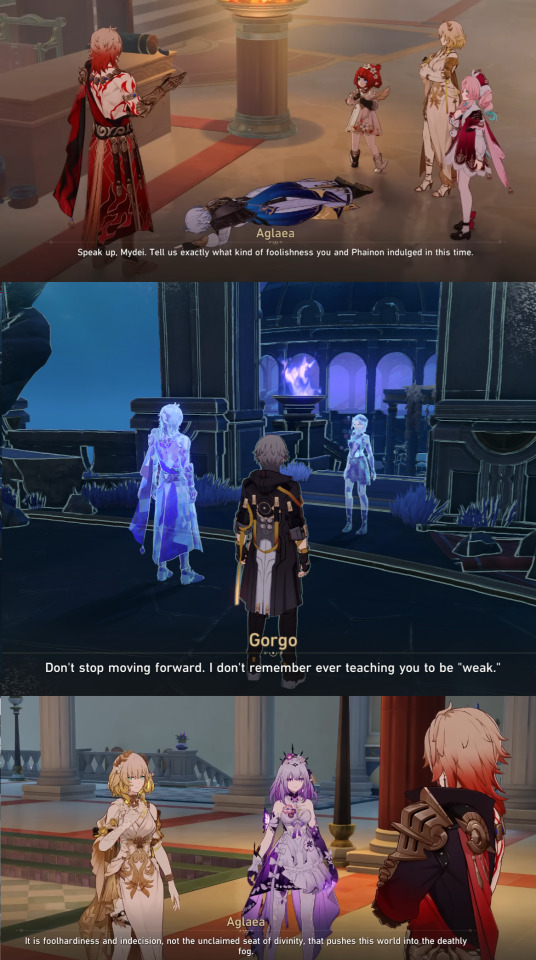
Mydei has it tough, having to meet the expectations of women like these lol.
To Fade from the World
Sorry, that was a bit too light-hearted for me, so time to end this post with some more pain:
A final point I think worth comparing between Gorgo and Aglaea is the ultimate fate that both of them face in the story: Gorgo is already gone, but Aglaea is not far behind.
Gorgo's death in particular is treated as abominable. Kremnoans may be warmongers and Strife worshipers, but they're supposed to be honorable about it. Key to their obsession with combat is the idea of noble combat, between contestants who are each given a fair chance. Despite being Gorgo's greatest ally, Krateros does not stand up and join her in her revolt against Eurypon, likely because of that same "might makes right" mindset that shaped so much of Kremnos's decision-making: If Gorgo's cause was truly righteous, then she should have been able to stand up for it herself and win a duel against Eurypon. If it had been a fair contest as expected by Kremnoan cultural standards, then whoever won would have been considered the "correct" person, and no one could have contested the fair results.
But Eurypon's cowardice drove him completely from the path of Kremnos's sacred virtues, causing him to betray their values by betraying his wife, using poison to deny her her fair chance in the duel. This action--forsaking the core tenets of Nikador's divinity--marks the truest extent of Eurypon's downfall, and cements that he is utterly unfit to rule, lacking both the courage to confront his wife in fair combat and the honor to reject under-handed schemes to ensure victory.
Gorgo's death is treated as a tragedy, an act that entirely shapes the course of the story through Mydei's loss to the sea and his subsequent quest for vengeance. It was cowardly betrayal that took away Kremnos's path to a brighter future, locking the self-fulfilling prophecy of Kremnos's downfall into place.
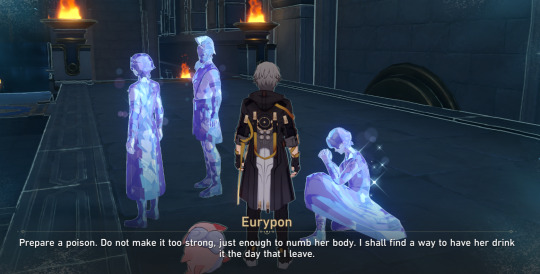
And this, of course, is a perfect mirror to the prophesied end Aglaea is going to face, possibly sooner rather than later. Upon their ascension as demigods, each Chrysos Heir is told how their life will end. Aglaea's prophecy states: "You shall have your final bath in warm and radiant gold."

As Aglaea is most often seen there, the assumption is that she will literally die in the baths--Mydei states this in-game, saying "If a normal person heard that prophecy, they'd probably just stop coming to the baths." Aglaea effectively dismisses this threat (in a very Kremnoan fashion even, lol) by simply saying "Well, who cares? I like baths!" Whatever will be, will be; if her assassin has the strength to end a demigoddess, then truly, it doesn't matter where she goes in Okhema or across the world--fate will find her.
Of course, there's also the possible interpretation that "final bath in gold" refers simply to bathing in her own golden Chrysos Heir blood...
But in either case, the prophecy, Mydei's comments, and some plot leaks I've seen all point towards a violent and unexpected end--likely at the hands of a betrayal.
Like Gorgo, Aglaea will not live to see the world she wished to create, the softer, golden future she wanted to bring to her people. At the hands of her enemies, either facing it with honor or in an unexpected moment of vulnerability, Aglaea will be eliminated before the final hour, fading from Amphoreus's memory as the survivors succeed--or fail--to usher in the new era she sacrificed everything to create.
Although both unique characters on their own, entirely separate from each other, examining Aglaea and Gorgo's parallel plot points, core character traits, and their roles and influences on others throughout the course of the story reveals yet another incredible "echo effect" in Amphoreus's writing, aligning opposites--Okhema and Kremnos, Beauty and Strife--through eerily similar patterns and revealing the enduring thematic threads that bind together the separate portions of Amphoreus's tale.
More than anything, Amphoreus feels to me like a very Hamilton-esque "Who lives, who dies, who tells your story?" plot, one that hinges on the question of who has the power to shape and reshape the future of their world, who has the power to break through a pre-ordained structure and bring about a better end--who has the courage to sacrifice it all to seize the reins of fate itself.
Through Aglaea and Gorgo, the story reinforces a message about women in power, women who perfectly balance violence (the traditional domain of male figures) with love, with beauty, and with righteousness to shake the foundations of their world. In what they value and how they lead, the story mirrors and mirrors again, mise en abyme, the message that those who are willing to give it all for the greater good are the true crafters of our story.
(Perhaps all this is preparing for the presence of another woman, one just as willing or more to do all that must be done to usher in a brighter future for her world?)
The history of the hunt should not be held by the hunter alone.
The lion has its own historian--and so too does the lioness.
Although Gorgo and Aglaea will both fall before that golden Era Nova can be achieved, the marks they have left on Amphoreus's plot, through their legacies of defiance and grace picked up and carried, torch-like, by other characters, demonstrate just how central both women were to all that happened in the world's past and all that will happen in its future.

#honkai star rail#aglaea#gorgo#mydei's mother#amphoreus#character analysis#hsr meta#this is the post I had mentioned starting a while ago#and ended up with a bit of a sour taste in my mouth over the hsr fandom#but then thinking about Aglaea and Gorgo revived my love#so fuck it we ball#two absolute queens#and the story makes a fantastic mirror image#of vastly different characters whose hearts are well aligned#Mydei's relationship with Aglaea is very precious to me#SHE WAS AFRAID OF HIM#and he's just like “I wish my mom was still alive so she could rule our country like you rule yours” T_T#like ma'am#that's your secret self-appointed mentee you had no idea was idolizing you and taking notes on your leadership#I wish we had gotten to see any of this in the game#Mydei's efforts to be more Aglaea-like for his own people lol#I'm also still laughing to myself#over the fact that Krateros clearly worshiped the ground Gorgo walked on#and then is like “AGLAEA IS THE WORST”#Sir???#that's the Okheman version of your grown ass man crush???#“It's Okheman so it's bad by default!!” >:[#I loved writing this post#but holy shit was it cursed#tumblr drafts died on me and lost half the text and half the images like THREE times DDD;
212 notes
·
View notes
Text
Random Musings on Gale and His Relationship With Mystra
I find Gale's relationship with Mystra to be one of the most fascinating parts of his story. It’s a dynamic that can be viewed in many different ways, depending on how you approach it and I think that’s part of what makes it so compelling. While some might see it literally, I’d like to explore it through a more allegorical perspective, though I want to be clear: this is just one way to interpret their relationship, and other viewpoints are just as valuable. This isn't even the only way that I personally interpret them haha. (I just have to be nuanced, it's a compulsion truly.)
In literature and mythology, take Greek mythology, for instance, relationships between gods and mortals can often carry deeper, symbolic meanings. The gods aren’t always just powerful beings they can represent larger forces like nature, fate, or human desires. This approach, called allegorical interpretation, is something I find really enjoyable! It adds layers to a story.
Consider the famous story of Paris’s judgment of the goddesses. The goddess Eris, seeking to sow discord, throws a golden apple inscribed “for the fairest” into a wedding attended by Athena, Hera, and Aphrodite. They decide to have the mortal Paris judge who deserves the apple most out of the three of them and is thus the fairest.

Each goddess offers Paris a gift in exchange for the title. Athena offers great tactical ability, Hera promises leadership over vast kingdoms, and Aphrodite tempts him with the love of Helen, the most beautiful woman in the world (who happens to already be married). Paris chooses Aphrodite, gains Helen as a lover and this leads to the Trojan War. Beyond the literal reading, this story can be seen as desire (Aphrodite) overcoming both wisdom (Athena) and marriage (Hera). Paris's fatal flaw is his lust for Helen. The story can also be interpreted as Paris losing due to declining to accept both of the other offers. He fails strategically in the ensuing war and also causes the collapse of his own kingdom.
Mystra, as the living incarnation of the Weave, can be interpreted similarly. She isn’t merely Gale's ex-lover. She is magic itself, the force that gives Gale his entire identity. Their relationship transcends romance; it’s more like that of a man consumed by his craft to an unhealthy degree. Like a mathematician to mathematics, or a physicist to physics, he's in love with something that can't love him back.

His attempt to give Mystra a gift she's never received before, something truly incredible, is due to his belief that transcending all limits to somehow earn Mystra’s (and thus, magic’s and his life's work's) recognition is both possible and necessary. It was 100% done with the best intentions but tragically any all-consuming passion carries the risk of blowing up in your face. (Just look at Alfred Nobel, pun intended) And, due to the aforementioned "blow up", his emotional low and his measurable low in his abilities correspond quite directly
There is a cut dialogue from early access about how much of his power he lost after this:
You see, this fire – there was a time that I could make it come alive. That it would take the shape of a dragon and roar in delight. There was a time I could silence a Beholder with a word, and lift a tower from its foundations with a flourish. There was a time I was all but one with the Weave. But no more – a mere shadow of the wizard I used to be. Why? Because I’ve lost.
A key theme in their relationship (in my opinion) is not just Mystra’s rejection but what her rejection represents: The collapse of Gale’s identity as a powerful magic user. (An identity he's built his life around and sacrificed for ever since he was a child)
Without this, he starts self destructing. He has to make do with consuming scraps of magic rather than the all encompassing sort he used to receive from Mystra's presence.
------------------------------------------------------------------------------
While Mystra’s treatment of Gale is undeniably harmful, I think it’s important to recognize that she is not cruel in a personal, calculated way. She is so out of touch with normal people that she’s more akin to a force of nature. As an arbiter of natural laws, she wants to control him/kill him because he represented a destabilizing influence, not out of any targeted animosity. (Which is arguably worse than outright hate depending on your point of view)
------------------------------------------------------------------------------
Now for a bit of a change in topic I wanted to go over his different endings:
His "good" ending comes from the realization that magic, or any external force, cannot be the source of true self-worth. The deeper theme here, beyond just getting over an ex-relationship, is that Gale must learn to build relationships with people and and find a healthy balance between his work and personal life, rather than devoting himself wholly to impersonal things at the cost of his well-being. He has to learn that he is "Galenough," as @ekansbot once put it. Ultimately, his growth in this regard is best shown with his choice to embrace his ordinary, human last name "Dekarios", rather than defining himself solely as the archmage "of Waterdeep."

------------------------------------------------------------------------------
More evidence about the meaning of names to him, earlier during the conversation with Mystra in the tabernacle, she will either call him "Gale Dekarios" if she's displeased to remind him of his humanity, or"Gale of Waterdeep" when pleased to inflate his ego with a title. This shows how revolutionary it is for him to willingly forego having a title at all in this ending as it had been something he sought in the past.
------------------------------------------------------------------------------

Alternatively, and more fun for my tragedy-loving psyche, he can totally succumb to his flaws and lose himself. In this case the orb's desires fully supplant him as a person. He becomes a power hungry god, doomed to perpetuate the same callousness Mystra showed to him. His grand dreams of bettering the world fades, and his only goals shift to slowly gathering more power and followers and eventually challenging the rest of the gods. He entirely gives up on being a "person" he's the god of ambition now, and you can see it in the way he speaks how much he has mentally separated himself from the mortal world. He has fully given up on having a life outside of his obsessions. It’s quite dark. (Though not quite as dark as my absolute favorite, the Absolute ending, where you use thousands of mind controlled innocents to become Kratos.)
------------------------------------------------------------------------------
Something that's extra sad for you. If the player character chooses to break up with him after becoming a god he says "so I'm still not enough for you" Aghh it's horrible. His insecurities only get worse as a god.
------------------------------------------------------------------------------

Or... he could kill himself. Literally destroying his darker hungers (the orb) for an altruistic purpose, but he also, obviously, destroys himself in the process. Very sad indeed.
Now, here’s something I find fascinating:
If Gale chooses not to use the crown, nor to surrender it to Mystra, but instead lets it remain in the water, the orb stays within him but rather than being a catastrophe it actually becomes harmless and inert.
Why does this happen? Gale speculates that it's because he has found contentment due to the player character's romance with him.
Clip sourced from this video: https://youtu.be/gikRKEIpvQs
This reveals something crucial: the orb, from the very beginning, was tied to his own emotions. It was basically an extension of him all along. He was inadvertently the one driving the orb’s power. It was his own despair and obsession that were indirectly killing him the entire time! It's very tragic but also supremely interesting!
It is this somewhat gut wrenching realization, though, that makes this the best "good" ending. He doesn't have to apologize to Mystra to get a happy ending out of pity. Instead, it is his own emotional catharsis that resolves the problem of the orb internally, rather than it being fixed through external means. It also has a sort of Jungian quality to it that I really like. With the idea of integrating and accepting all parts of oneself (allowing the orb to remain, but becoming settled and integrated), rather than trying to shed them being a theme I think fits his character well. Additionally, he keeps the orb scar, which looks pretty neat. :)
#bg3#gale dekarios#gale of waterdeep#mystra#character analysis#i like the endings where he gets worse the best but that's just because i'm sick and twisted😔#his absolute ending is just really good ty larian for the evil update#hope you enjoyed my screenshots as well#when people do real world au's of gale and mystra the general way most go about it is to have her be a boss or something along those lines#this is cool!#but what i personally would do if i wanted it to align with this interpretation more#is to have her be a disembodied research project or general obsession that consumes his life#this is a bit rambly my apologies#i've already been editing it for so long i'm just going to release it into the world to be free
285 notes
·
View notes
Text
wait wait wait we've seen this before. we've seen someone ignore the fears so hard that she survived a ritual. sure, alice is flippant like tim, but the way she just ignores and compartmentalizes the horrible things she's forced to witness is so much like basira.
#their personalities don't align much otherwise (as far as we know) but still!! think about it!!#basira (anti)logic-ed and ignored her way out of the unknowing!#tmagp#tmagp analysis#the magnus protocol#tma#alice dyer#tim stoker#basira hussain#bs.txt
1K notes
·
View notes
Text

#dc comics#dc#comics#comic books#comic characters#batman characters#character appreciation#character analysis#alignment chart#memes#funny#i made this#my edits#batfam#batkids#jason todd#red hood#the red hood#jason peter todd#humor#jason todd wayne#funny memes#character alignment
694 notes
·
View notes
Text
You know something I enjoy about Skywarp's teleportation across different continuities is that it's rarely the same. The mechanics of his teleportation vary in nearly every continuity, and there are different limits to how it works. In G1, for example, it’s portrayed as a sharp purple flash, accompanied by a distortion of time and space, as Skywarp is able to teleport in an instant. Kind of confused why he doesn't use it that much.
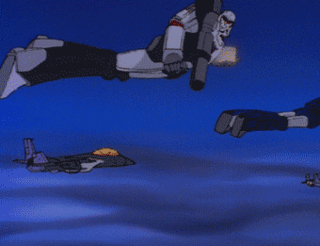
The same appears to be the case in both IDW1 and Shattered glass.
In IDW2 it does appear to seem as though Skywarp can create portals to facilitate his teleportation, though this doesn't appear to be a necessity, as he can simply warp without forming a portal. In this continuity, his teleportation is depicted with a golden hue, and it leaves behind a trail of what looks like mystical smoke (or something similar) as he disappears. I kind of like how much he uses his teleportation in this continuity to be a menace not gonna lie.
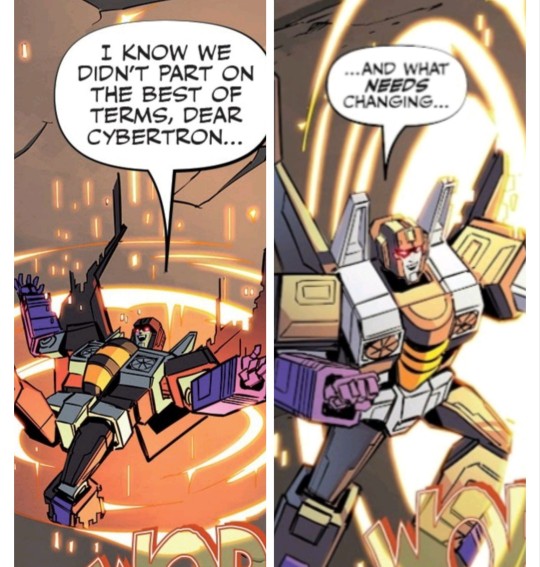
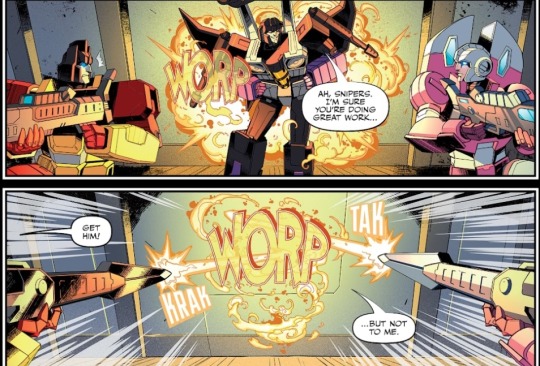
In Skybound, Skywarp only uses his teleportation once, but it’s a pretty cool twist. Instead of just teleporting to another spot, he creates these mini portals or disks that stay in place. He then reaches through them to mess with Optimus. The teleportation has a green hue here, which makes for a pretty neat iteration of his powers because imagine if he can use it to just steal important weapons or stuff like that without even trying to move. On paper it's less riskier than actually teleporting there himself. And funnier ngl.
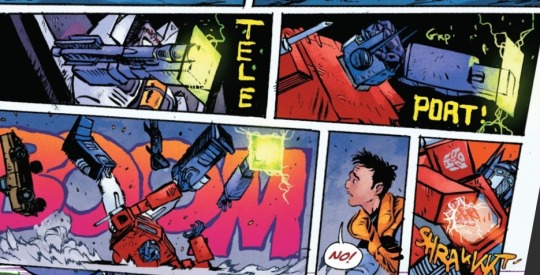
Then there’s Earthspark, where his- or her teleportation is really something..... In this version, her teleportation is ridiculously fast, almost like lightning itself. The whole thing happens so quickly that it looks like she literally transforms into lightning, streaking across the space with this red glow. It’s almost like she’s not even teleporting in the traditional sense; she’s just zipping through reality so fast that she becomes a bolt of lightning, visually it looks pretty great.


But at the same time something I love about giving a charecter a pretty overpowered ability like this is as usual it usually comes with a fair share of drawbacks. Or rules that pertain how it functions.
In the Aligned Continuity, or the pre canon TFP novels, Skywarp’s teleportation has this limitation. He has to plan out his destination at least five seconds before jumping, or else he could end up teleporting somewhere completely random, which could be pretty disastrous according to him. Starscream took advantage of this weakness to set him up,which ended up getting him killed. This version of Skywarp’s ability really relies on him being able to think ahead and stay grounded, because if he tries to teleport on the fly, he’s basically gambling with his own life
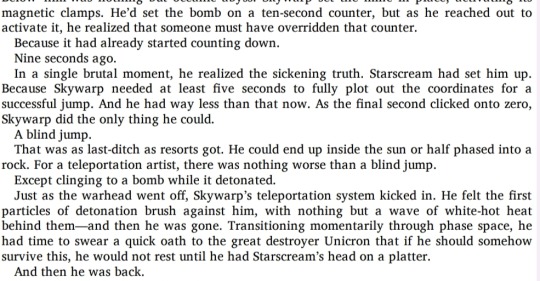
However, other continuities don’t seem to have this same limitation. For instance, in Earthspark, Skywarp is shown teleporting randomly to different locations within the span of just a second. Her limitation in this version, though, is that she can’t warp through solid objects, which means if she's trapped in a room with no way out—she’s effectively cornered.
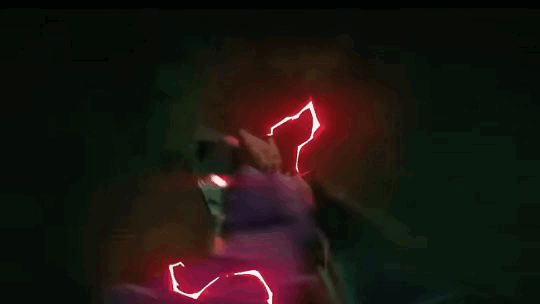
Then there's IDW1 Skywarp—though I wouldn’t really call this a limitation- as this happened due to an incident rather than it always being inherently present, but when he gets stabbed by Arcee during a jump, he loses control over his physical form. He essentially becomes incorporeal, existing almost like a ghost, and has to struggle to keep himself anchored in reality. Messing with space time kind of does that I suppose.
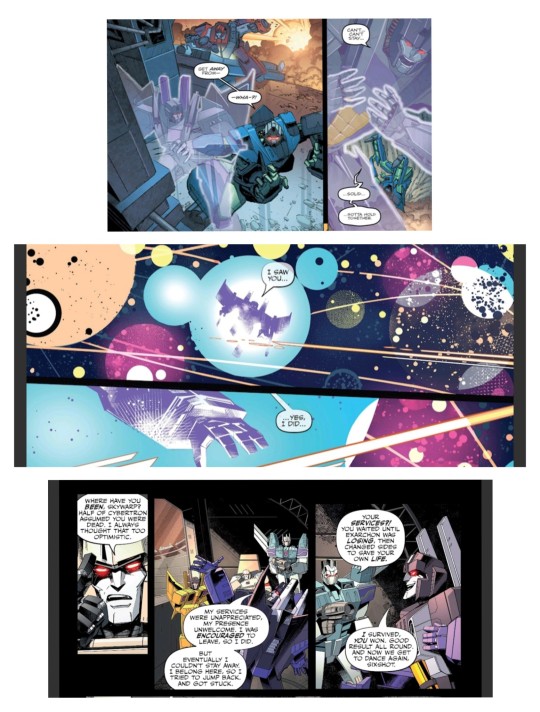
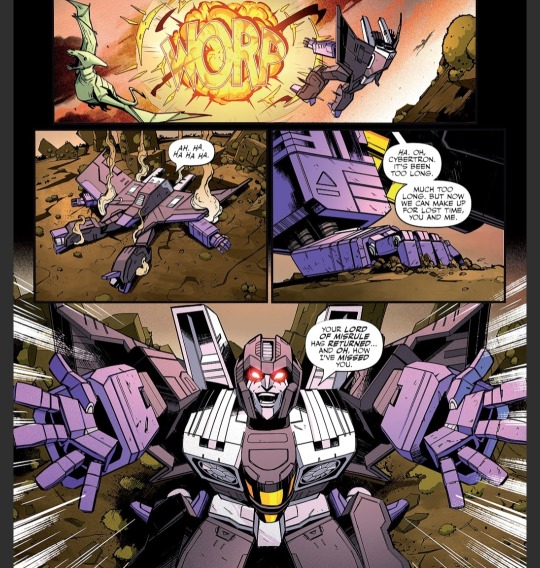
IDW2 Skywarp went through something somewhat similar. He attempted to teleport all the way to Cybertron after he was banished, but ended up getting caught in unspace, where he was trapped for thousands of years. He eventually managed to latch onto Jumpstream and escape, only to be thrown right back into unspace in the end, low-key karma since he was pretty much just changing allegiances on merry whim just to have fun(valid), but also sucks for him. Honestly, a miracle he didn't completely lose his mind after all that time alone- then again he probably did. Unspace was to my knowledge mostly accessible by teleporters such as Skywarp and Jumpstream in this continuity.
So, the moral of the story is—teleportation is fun, but also kind of sucks, at least for Skywarp. Seriously, why are G1 and Earthspark the only shows where he actually gets to teleport? It’s literally in his name—just let him teleport already, I beg of you!
#transformers#tf#skywarp#teleportation#maccadam#maccadams#aligned continuity#transformers skybound#tfp#tfe#earthspark#transformers earthspark#transformers g1#rant#?#he's so fun let him do his thing#idw transformers#idw1#idw2#analysis?#not really?#tf Skywarp#transformers skywarp
135 notes
·
View notes
Text
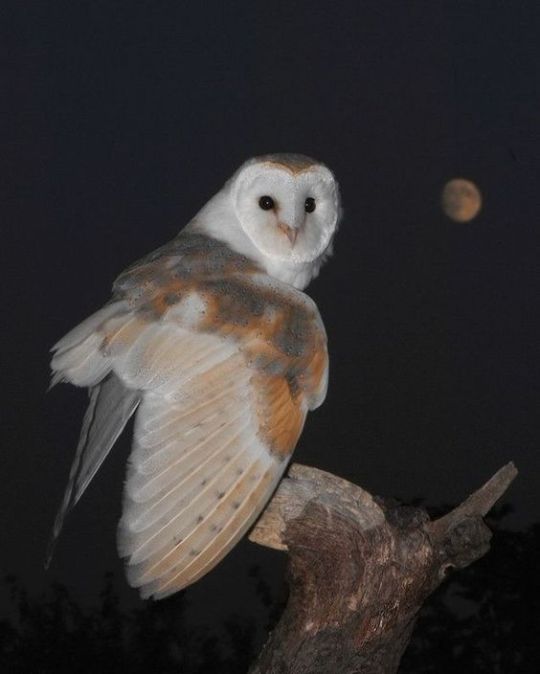
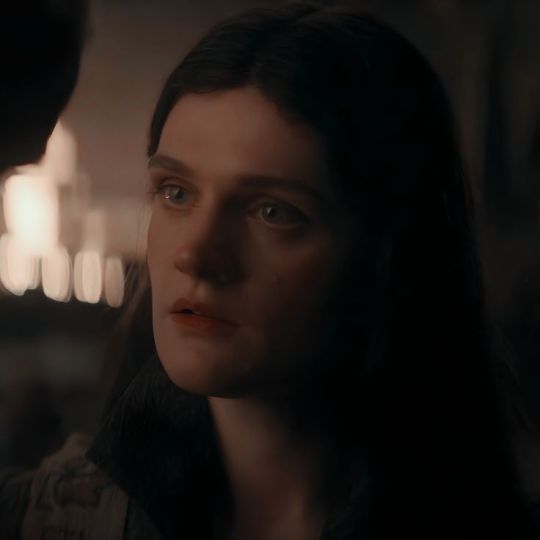
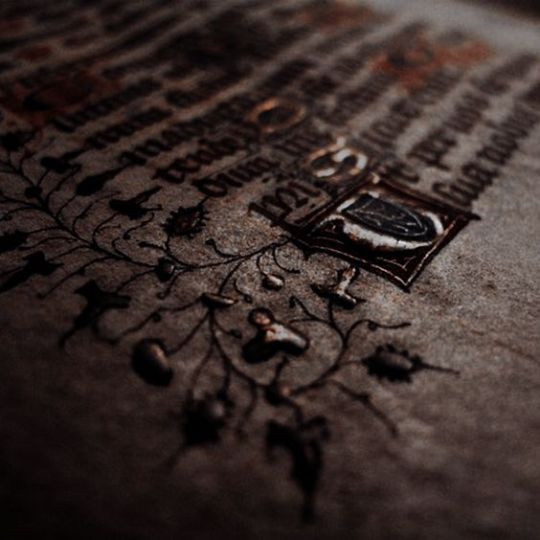
𝐁𝐞𝐢𝐧𝐠 𝐀𝐥𝐲𝐬 𝐑𝐢𝐯𝐞𝐫𝐬' 𝐛𝐞𝐬𝐭 𝐟𝐫𝐢𝐞𝐧𝐝 𝐰𝐨𝐮𝐥𝐝 𝐢𝐧𝐜𝐥𝐮𝐝𝐞
⤷ female, and any size reader. Requests are open, thank you for reading!
a/n: reader is a Rivers like Alys aka ... a bastard, however, you are not related...Also this is completely and utterly platonic!
ᴹᵃˢᵗᵉʳˡᶤˢᵗ | ᴹᵃˢᵗᵉʳˡᶤˢᵗ ᴵᴵ
INFJ
Slytherin
Chaotic Neutral
Scorpio Sun, Aries Moon, Sagittarius Rising
𝑺𝑭𝑾🌿
・Always being around her - I mean literally accompanying her everywhere. She doesn't mind. You even watch her do some witchy things but you HAVE to be quiet... you've learnt your lesson...
・You're the only person she has allowed to be close to her. No one else is Alys' friend. Only you.
・Matching her energy 1000%
・Everyone thinking you're sisters, or related, even if you don't look like each other
・She NEVER lets anyone hurt you. Overly protective of you. Has and will hiss at people who say rude things to your face. Has, and will give them terrible nightmares... maybe an upset stomach ... would definitely kill for you (probably has but wouldn't tell you about it)
・Sometimes feeling a bit lost because Alys has such an important role in everyone's lives
・You help her find specific ingredients for her potions and spells
・If she's an owl then you're a cat or maybe a crow. There aren't many people who can get close to you...
・You can't lie, you do like shiny things. Or just collecting random things; like nice rocks, shells, you love animals and once you were forbidden from bringing in strays - so Alys helped you sneak in a cat
・Whenever the cat meowed, Alys would pretend it was her (everyone thinks you two are slightly crazy, so they never questioned it)
・Even the dead mice that was found around the castle (came in handy for spells tbh)
・Having sleepovers ... but it's basically just you falling asleep in her bed while she's up until morning
・Although Alys knows everything about you; she has always had a mysterious air about her. You know she has secrets, and you detect that she may not be entirely human ... but you trust her with your life
・And you should, because many times she has saved yours without you knowing in the slightest
𝑹𝒆𝒍𝒂𝒕𝒊𝒐𝒏𝒔𝒉𝒊𝒑 𝑻𝒓𝒐𝒑𝒆𝒔
Two Damaged Individuals Who Attach Themselves To Each other
Platonic Soulmates
Scary Dog Privilege
𝑷𝒍𝒐𝒕 𝑻𝒓𝒐𝒑𝒆
Intertwined Destinies
𝑻𝒉𝒆𝒎𝒆 𝑺𝒐𝒏𝒈
Zanka by DakhaBrakha
Me and the Devil by Soap&Skin
Living Dead Girl by Rob Zombie
#witchthewriter#headcanons#alys rivers#alys rivers headcanon#alys rivers x reader#alys rivers x platonic reader#harrenhal#hotd season 2#house of the dragon#hotd#hotd headcanons#house of the dragon headcanons#witch#witchcraft#house strong#infj#slytherin#witch the writer's headcanons#asoiaf#asoiaf headcanons#tropes#character tropes#character analysis#character profile#alignment chart#a e s t h e t i c#birth chart#got#got headcanons#a song of ice and fire
266 notes
·
View notes
Text
I know it's well-understood at this point that Kirk/Spock is much more of a nerd4nerd ship than a nerd/jock thing, but it's just been kind of percolating around my mind that both of them aren't just space nerds but space nerds who were personally bullied.
Like, 18-year-old Kirk was targeted by an older bully who combines "total asshole" with "the most grating man in existence":
MCCOY: Well, yeah, I'm beginning to feel a little bit picked-on, if that's what you mean. KIRK: I know the feeling very well. I had it at the Academy. An upperclassman there. One practical joke after another, and always on me. My own personal devil. A guy by the name of Finnegan. MCCOY: And you being the very serious young— KIRK: Serious? I'll make a confession, Bones. I was absolutely grim, which delighted Finnegan no end.
This was five years after Kirk survived a genocide, btw, and likely well before his stint as an Academy instructor known to be strict and demanding (which is the period the "stack of books with legs" description of him comes from). By the time he's 33, fifteen years after all this, it turns out one of his deepest fantasies is just beating the shit out of his bully, but only if he can do it According To The Rules (the replica of Finnegan sneers, "Always fight fair, don't you? True officer and gentleman, you").
Spock, meanwhile, is viciously targeted by his Vulcan peers for being biracial from at least age 5; he's described as being tormented by other boys by that age, and "at home nowhere except Starfleet." I think he'd have been 18 or 19 when he left for Starfleet and it's... the least bad of his options, but he seems to have spent his entire career among humans and being persistently subjected to raw racism and profound disrespect for his culture at every turn.
Like, their histories of being metaphorically shoved into lockers are not identical or anything, but I think it's interesting that they both have them.
#i feel like kirk and mccoy are generally seen as more temperamentally aligned despite kirk being emotionally closer to spock#spock representing cold logic and kirk and mccoy as the passionate emotional ones#but i feel like a) spock is wildly emotional just repressed. and coolly utilitarian in philosophy. and usually undemonstrative.#b) mccoy is highly intelligent and sometimes VERY much the voice of reason#(not typically cool rationality but certainly reason - he puts together clues that the others don't see on multiple occasions#he's not as easily derailed by obscuring details or over-cerebral analysis paralysis as the other two imo)#c) but mccoy sometimes struggles with the really big emotional shit and spock is more on kirk's emotional wavelength there#(this is especially obvious in conscience of the king and turnabout intruder but not only there - in both mccoy resists seeing#the full horror of the violations of the most basic rights that kirk has endured while spock is much more sensitive to those things)#and d) kirk is emotionally expressive but typically more cautious and measured in judgment than either of the others#more likely to formulate positions in terms of philosophical principles than mccoy's kneejerk sense of decency#(which sometimes is exactly what's needed and sometimes disastrously lacking in rigor and reflection)#or spock's often brutally utilitarian focus on outcomes that runs roughshod over... like. everyone.#that's why kirk is the mediator; he's not at the exact midpoint in every dispute#but broadly his personality and strengths/weaknesses fall pretty evenly between spock and mccoy#(interestingly i think this is especially noticeable with kirk's infamous seductions - which are rarely motivated by simple desire#they combine the focused perception and expressiveness of mccoy and the brutally self-denying calculations of spock#when sylvia exclaims that he seems warm and passionate but his mind is cold it's like... yeah. softly lit femme fatale james t kirk#it's like the unholy side of kirk's overall approach borrowing pretty equally from both mccoy and spock)#ANYWAY the point is that i don't think kirk is actually more similar to mccoy than he is to spock#and in particular his tendency to repress the horrors and focus on useful concrete action are very akin to spock#long post#anghraine babbles#star peace#otp: the premise#c: who do i need to be#c: i object to intellect without discipline#star trek: the original series#anghraine's meta
142 notes
·
View notes
Text
There are many iterations of MegOp I can believe in... but not TFP.
Feels homoerotic or queer? Sure. A lot of tension? Definitely. A yearning or upon the cusp of something? I'm fucking dying right on that edge.
But TFP Megatron and Orion Pax couldn't even understand each other's histories and motivations, let alone have a hard conversation on their own philosophies, back up plans, and direction for society besides the pretty stuff. Y'all really think they fucked? Even if it's angled as 'hate sex' or casual, they fucking misread each other all the damn time, even if they vibed on the same level, which is so painful to watch. I wouldn't be surprised if one of them tried to subtly hit on the other in their own caste-derived/in-group's specific doublespeak... just for the other guy, who's an outsider, to understandingly not pick it up, but all their associated caste buddies did.
Honestly, I wouldn't be surprised if that's why Ratchet and Soundwave have several tons worth of beef with each other's respective friend/war leader. Besides destroying life and civilization as they knew it.
The thing is to remember, Megatron is very much a social butterfly in a way. He genuinely likes people. He likes interaction. He has the flair and disposition for it. His inherent sense for the dramatics just enhances it. But the most important thing, Megatron was literally reared within the structure of the city-states. He intimately knows the social equations for his caste, has a lot of support in terms of emotional via friends, allies, and mecha with similar grievances, and is deft enough to wade through the avenues that are available to him and he takes them with both fists (gladiatorial clades into the political arena). Violence (and emotions) is a language that's easily available to him.
Orion Pax, on the other hand, is more careful. He has to be. This guy literally came from the boonies of Nowhere and got snatched up by a really powerful figure within Iacon inside the very heart of its machinations. People were beyond rage at that treatment. Orion isn't stupid but he's playing really dangerous games with colleagues that despise his very presence and multiple frameworks that literally eat people alive to keep a very brutal status quo. Then accounting Alpha Trion's own status as an Ancient Prime with the very relic with the power to foretell future events across the multiverse... it doesn't paint a kind picture on reasons why the hidden Prime plucked up Orion. The repression and stonewall tactics that Orion, and later Optimus, use really make sense with this in mind. The Iacon Archives are a keystone of the higher castes. Orion had to moderate his entire self around those people that would absolutely snitch if they caught a whiff of 'insubordination' or 'illegal' activities' or 'strangely sympathetic to those undeserving' along with the weird little side quests with Alpha Trion. Orion had to learn really fast how to bend before breaking, especially if he can only rely on himself in a perilous environment.
All I'm saying that these two spoke Neocybex, but absolutely missed all the cultural context of each other's backgrounds that would have easily explained the 'whys, whats, wheres, whens, and hows' of their decisions and behaviors. They legitimately did see something really amazing in each other, but never actually dug deeper thinking that the other mech would immediately understand their motivations and that's what so fucking infuriatingly tragic on why they felt so betrayed by one another.
#transformers#transformers prime#tfp#megatron#optimus#optimus prime#orion pax#cybertronian culture#cultural misunderstandings#analysis#maccadam#my thoughts#i puzzle over these two in this iteration since they're so.... them#like holy hell how the fuck can they be so locked in and yet miss the fucking basket all the time?!#part of it is writer/show ambiguity as well as some characterization clashing with the narrative BUT#there were WAYS to show and tell how damn different these two really were and why they kept missing each other#my ongoing weirdness with alpha trion's presence in aligned
89 notes
·
View notes
Text

An alignment chart of mainstream kids media and how it deals with magic.
Explanation under the cut.
I have never watched The Owl House, but I have seen the plot synopsis. It’s about a human girl going to magic school.
Sokka from Avatar is the only non-bender in the main cast, and he’s perfectly fine with that. At one point he does get a bit insecure, but while his friends are playing around with rocks and water, he studies the blade. This fixes everything.
Aura is a soul-based magic system introduced in the eighth Pokémon movie. You’re born with it and it basically gives you Jedi ghost warlock powers. Ash is one of three confirmed aura users in the entire show, with one of them being long dead, and he doesn’t give one ninth of a fuck, to the point where he was offered training by the only other living aura user in existence and he politely declined. Good for him.
Luke is a magical guy and he likes magic. That’s about it.
#star wars#luke skywalker#pokemon#ash ketchum#pokemon anime#pokeani#pokémon#my fucking shit#sokka#atla sokka#the gaang#atla#sokka avatar the last airbender#toh luz#luz noceda#toh#the owl house#Alignment chart#Media analysis
87 notes
·
View notes
Note
i need ur opinion on angel cdream
I’ve literally had this for weeks and this is still all I got…

#happy meme monday!#dsmp memes#to be fair though c!dream isn’t an angel he’s clearly god jesus and the holy spirit lol XD#hello there#(lol felt relevant after recent asks XD)#dreblr#c!dream#dsmp#doomsday trio#rivalsblr#c!rivals duo#dsmp meme#this gives me post prison vibes but it’d probably work for many peoples aus to be fair#spn memes#rivalsduo#so like literally all my brain can think of is Castiel… like one track mind which I know isn’t what you meant lol#but I will say I have read some people’s angel and demon dream and tommy analysis before and I don’t really agree with it#some saying Dream is an angle that then falls with Tommy as the demon who becomes good or just more Dream is demon and Tommy is angel#which y’all all know doesn’t really align with my opinions on the matter… I will say Dream as an angel is interesting though and I do like#to read fics where he has wings (because well usually lots of angst lol)…#anyways I’ll keep thinking about it to se did I come up with anything but enjoy this meme instead I guess <3 <3 :)
97 notes
·
View notes
Text
TFP's designs reflect the writer's decisions regarding character direction very well.
It's not as though I don't like the designs on their own; on the contrary I actually love the less-action-figure-and-more-extraterrestrial art direction they took with the Transformers.
But a lot of the designs push certain aspects so far to the point where their barely recognizable from the characters they are supposed to be.
Somewhat Coherent Ramblings below on the 3 biggest "victims" with my (admittedly limited) transformers lore knowledge.
is that a stickbug or a snake?
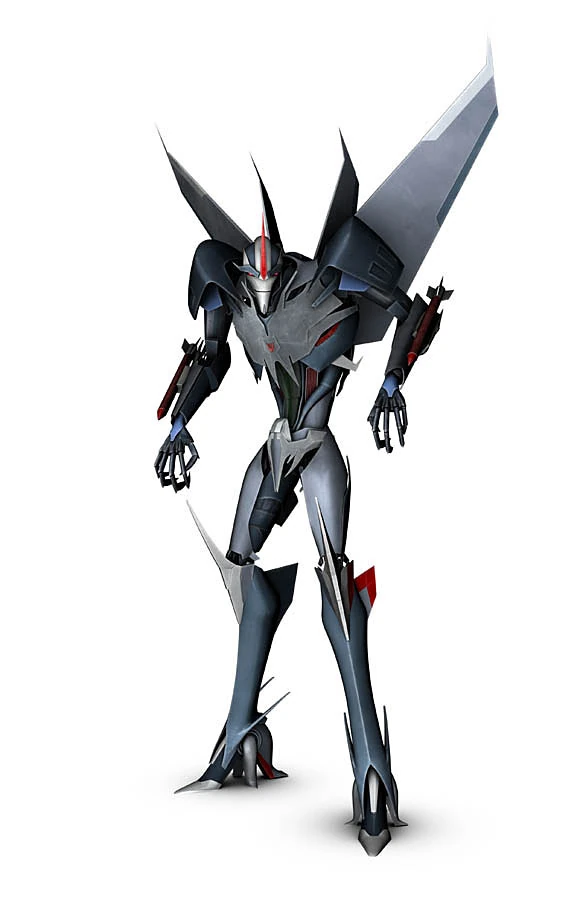
Starscream got a bad back from carrying the entire Decepticon cause on his shoulders while Megatron's snorting up Satan's crotch dust so forgive his poor posture.
Like it's a solid design for a for a sniveling backstabber- being able to look like a pathetic little bug one second to a ruthless killer the next.
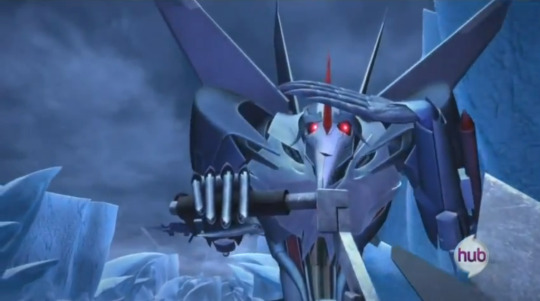

And I love how he's rigged and animated- forget Predaking most of the animatign budget went into Starscream's theatrics-
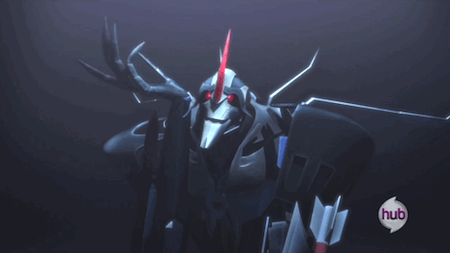
Honestly he's probably the least "problematic" for lack of a better word for me because he can be fixed with giving him a paint job and maybe a helmet- probably styled along the lines of RID!Starscream's helm and he'd be fine.

A bigger part of my problems with his design now that I've ruminated on it is more how he's not allowed to feel like a proper, competent threat on his own after the first half of S1- and in turn, how he's not allowed to be intimidating more often.
the Sleeping Beauty Dress argument

Seriously tho- like she looks good but why did they make her blue specifically? Just make her a dark magenta to go with the muted color scheme of the show if your worried about her standing out to much (she's a $30k sports bike in bumfuck nevada- she's already flunked the "in disguise" part of the class)

I get the "oh the she's only girl she shouldn't be pink" argument but you know what would address that? HAVING MORE FEMALE CHARACTERS.
Getting off track...
Again, Arcee's design on it's own, even with the whole "female transformers must be motorbikes so we have an excuse to make them slender" trend, it's really cool.
It reflects her tough-love approach, and how the war has left her sharp around the edges so she doesn't get hurt again. But she doesn't really feel like an ARCEE design.


Like I've said before, it feels like at times the writers couldn't get permission to get the characters they wanted and decided to write the characters they could get to fit the story they wanted to tell, and that reflects in their designs at times. She takes charge of the team because she's best suited for the job, just ask her.
Arcee even is the one to take out Shockwave and allow her and Cliffjumper's escape- similar to how another blue-femme rescued a similarly named friend from Shockwave's clutches back in G1.
With this design and writing direction, it would have been better suited to another spiky blue femme; Chromia. She even comes with an established red love interest to kill off (sorry Ironhide).

Hell if the writers REALLY wanted they could have even still had her Tailgate Event happen with her favorite sharpshooter (sorry Moonracer).

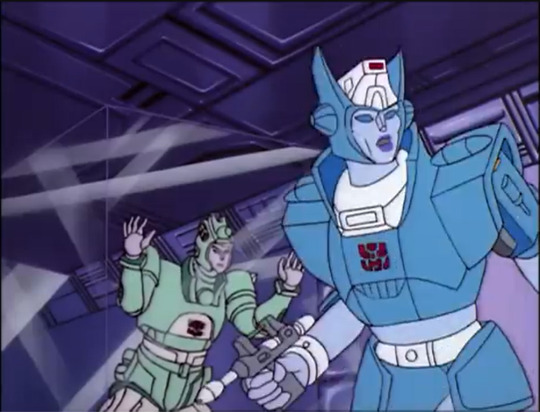
Arcee girly pop
boombox gone eldritch cyber horror

I love this design so much, but where the HELL is Soundwave supposed to store his minicons??? That's his whole thing! Yes he has Laserbeak- but there should be SOME indication of where his lost Cassettes used to go even if they are dead (which in all likely hood they are but again- SEPERATE post).

It's very interesting to me how stripped down he looks, as though with each cassette he's literally lost a piece of himself.
Give Soundwave his Full-Grown Children Back Damn You.
Rumble and Frenzy would have had a fucking BLAST messing with the Jasper team- humans and bots alike.
Bonus:
I will admit when I found RID Drift's design and how Jetstorm and Slipstream are docked on him, I am curious if Soundwave's had his Cassettes on his arms too.

Because if that is the case Soundwave does have room on his arms for at least two- maybe four on the shoulders.
#Transformers#Transformers Prime#Transformers Aligned#TFP#Starscream#Arcee#Soundwave#Cassetticons#Laserbeak#Rumble and Frenzy#Rumble#Frenzy#TFP Starscream#TFP Arcee#TFP Soundwave#TFP Laserbeak#TFP Rumble#TFP Frenzy#AngryComet Rambles#Character Design#Character Analysis#Sort of?#more me just griping about writing choices again lol
46 notes
·
View notes
Text
okay so apollo vs python round one time!!
bear with me because this got really long
so the thing I've long wondered about this event is just Why The Fuck did he do this. at four days old. alone.
because it makes no sense right??
even if he wants to take revenge and protect his mom, at this time he's a duo with artemis and isn't she by all means more qualified for this than him?? she's the more martially inclined of the two and represents lawlessness and wildness, I don't know if she is yet but still, when she comes into her divinity (only a few days later!!!) she'll literally be known as the huntress of wild beasts
so that is one point. the other is just what possessed him to think he could do this?? python is a child of gaia who has been openly tormenting a well connected titanness and has taken over delphi the center of the world and dictator of fate and hasn't been defeated yet
apollo is, again, four days old and not the martial one of the pair, in either powers or disposition, he doesn't have any experience using his powers in general, let alone offensively what made him think he could do this??
why him, why now
well my answer is that I think it makes perfect sense if we take into account two things 1) that he is the four day old embodiment of Light as a concept and 2) the reason python was chasing leto around in the first place
right, what started this in the first place, python received a prophecy that the unborn son of leto would be his murderer, that's why he was trying to kill her before she could give birth
and again apollo is four days old meaning his nature has not been,, "tainted" by much of anything yet, be it humanity, belief, other domains or even social interaction. let us remember what he developed into in the future when he's more of a person and not only a pure concept, an avatar of relentless seeking and revelation and knowledge and truth. light is not restrained or subtle at all and this was the time when that was all he was
so basically I think apollo knew there was a prophecy that said he would kill python and just fucking went for it, the winning condition was already met just by being him so why wait right? did he think he was in any way qualified otherwise? no, did he have a plan or any idea of how he would manage? not at all, but it literally did not matter since his victory was already written in fate and confirmed by python, it must have looked like a bright point a to point b to him
and I think that's how he beat him, by leveraging prophecy and using it as a weapon, he was by all means no match at all but it was fated by a prophecy that scared python enough to confirm it's validity and they were at delphi that he usurped from his grandmother so he had the right of inheritance on his side and with his faith and steadfastness on this one thing, apollo won by literally muscling the domain of prophecy away from python
you know the fate string apollo uses on his bow in canon? my headcanon is that this is where it came from, that deep in the fight, he physically took the string of the prophecy and literally used it as the arrow that killed python and later used it to string his bow and now all his shots have literal reality piercing power
#apollo is an unsubtle and direct person by nature#all the cloak and dagger stuff he does in the future is completely learned behavior#and by that I mean his knowledge domain working overtime to find routes to survival like a fucking learning ai#“truth is knowledge and knowledge is truth”#“and Knowledge is telling me the only path to survival is to hide the truth and Truth is half confirming it half screaming”#very interested in the gymnastics this guy does to even be able to exist as he does#anyways artemis didn't go because apollo knew they were way underleveled#and only he had a cheat button#and because it never occurred to artemis apollo would pull this shit#because she's actually hunting aligned and has an actual danger sense#alas apollo chooses to put his faith in symbolism and conceptual bullshit#toa#trials of apollo#toa apollo#pjo apollo#the trials of apollo#toa analysis#toa headcanons
52 notes
·
View notes
Text
interesting thing about the oiar is that they don't seem to be collecting something as much as they are, well, assessing things. at the magnus institute, people specifically came in to have their statements taken. the feeling was very much the institute feeding on stories from the very start. but at the office of institute assesment and response, not a single case was meant for them. these are just assorted accounts of things that have happened to people that they are looking at. assessing. and categorizing. something the institute never officially did.
if something spooky happens to you in the archives universe, you go to a spooky institute and give them your statement. if something spooky happens to you in the protocol universe, and you happen to have left some sort of trace of it online, the office of incident assesment and response finds it and categorizes it.
the functional difference is that the oiar is not feeding. it is assessing. it is observing something. the affects of something. maybe something they don't even understand. some sort of change that occured in their universe.
#i find the oiar so cool because like. what if theyre a completely neutral force#in that theyre not aligned with any of the fears#I JUST REALLY WANT PROTOCOL TO BE VERY DIFFERENT FROM ARCHIVES#tmagp#the magnus protocol#tmagp analysis#tmagp theory#tmagp meta
166 notes
·
View notes
Text

#alignment chart#memes#my edits#dc comics#batfam#batkids#batfamily#headcanon#damian wayne#robin#tim drake#red robin#duke thomas#the signal#cassandra cain#orphan#batgirl#stephanie brown#the spoiler#jason todd#red hood#barbara gordon#oracle#dick grayson#nightwing#batman characters#batgirls#batboys#character analysis
186 notes
·
View notes
Note
Some of the concept art and deleted scenes for the SMB 2023 movie has me wondering if Luigi was originally gonna be the more confident one. In the concept art, Mario looks tired/dejected a lot of the time, there was a pic of them in the van with a "Luigi Bros" logo while Luigi had his feet up on the dash all smiley, and then the deleted scene when the pipe breaks and Mario's sad and suggests that they give up and go home... it makes me wonder if Luigi was gonna be more optimistic while Mario was more prone to feeling discouraged. I wonder what the reason for this change would have been.
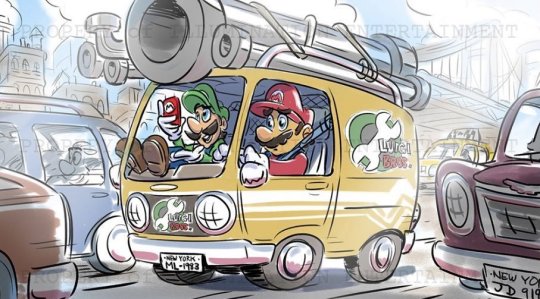

I think it was to keep the relationship between the bros simple while hammering home Mario's sense of responsibility for his brother.
If we started out with Luigi being the confident one who fronted the plumbing business, then the story would have to tackle why Luigi is able thrive in Brooklyn as opposed to his brother. Then there'd be the question of why Luigi would be so willing to move to The Mushroom Kingdom in the movie's aftermath if he was doing so well before. If Mario has a leadership role from the beginning there's less to untangle, but despite this change there's still a vague sense of Luigi being the upbeat one compared to his brother. Luigi was the most optimistic about their commercial, the most vocal in his excitement for their first client, and the one most able to ignore the critiques of their family.
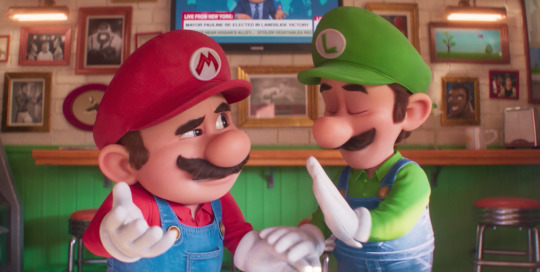
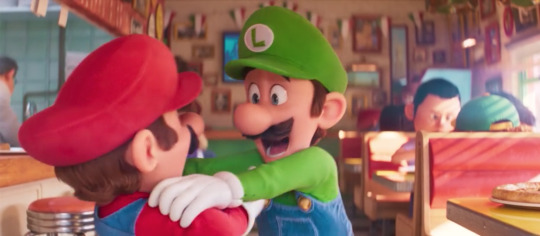
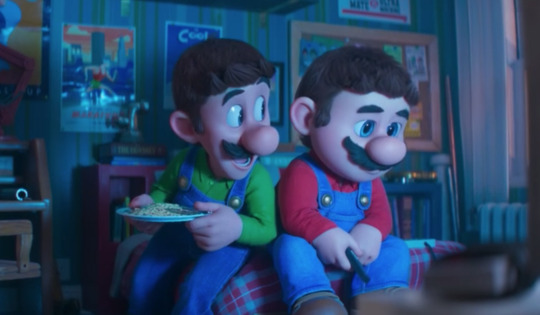
Mario, in the meantime, has all the gumption and determination one would expect from a future hero, but at the same time he bears a greater sense of responsibility. This is best exemplified in the way he acts at the dinner table, where Mario is visibly exhausted while Luigi feels free to shut his brain off and just focus on the food.
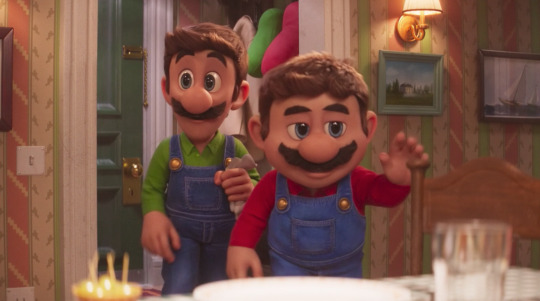
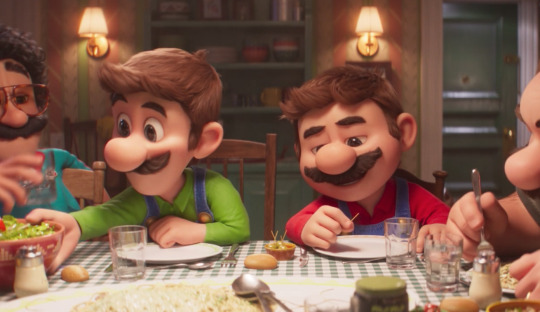
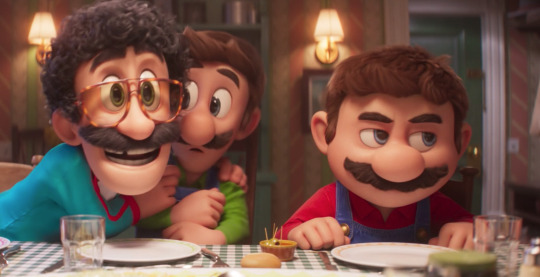
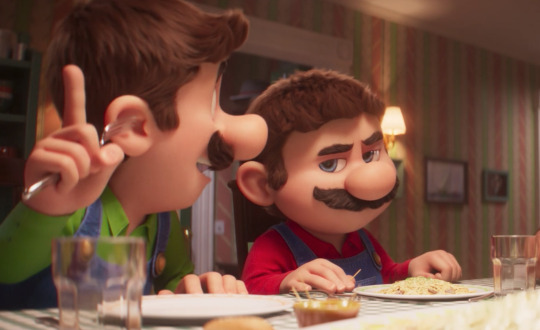
So I'd say we didn't stray that far from the "Luigi is confident while Mario's dejected" theme present in the concept art, but the dynamic shift of them going from "The Luigi Bros." to "The Mario Bros." would've been a bit too much.
#askbox#anon#honestly I like it this way#Luigi idolizing his bro and wanting to follow in his footsteps definitely better aligns with the games anyways#Mario Movie#Super Mario Bros#Super Mario brothers#Mario#Luigi#Mario headcanons#Mario analysis
152 notes
·
View notes
Text
Makima, devils and self-fulfillment
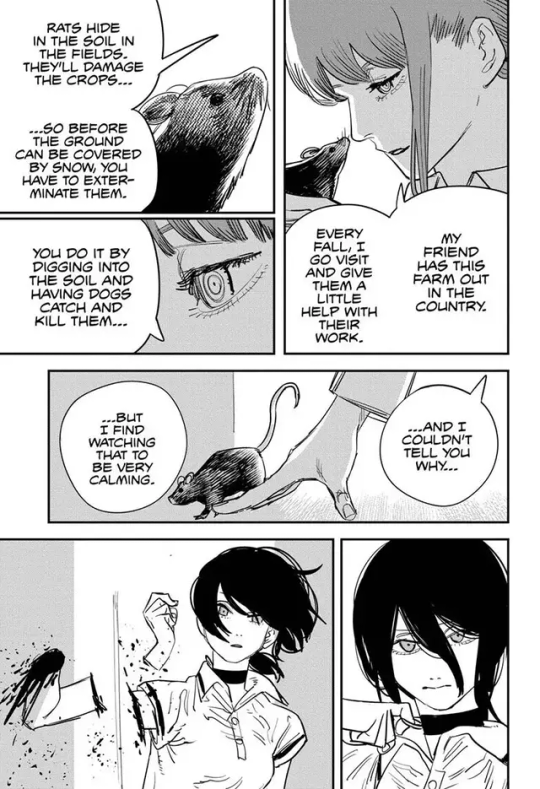
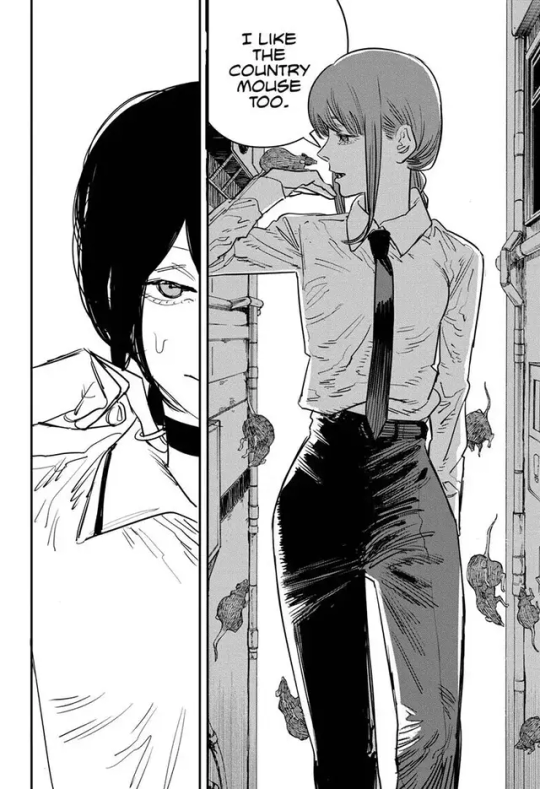
Dumping some Makima and CSM thoughts after a part 1 binge bc I think about her forever and ever. I’m sure I’m forgetting some devil lore, feel free to correct what i get wrong/what’s been confirmed. On the table of contents there’s why & how Makima got fixated on Chainsaw, her revealing liking for the country mouse and discussion of her nature & emotions & desires. Was the scorpion doomed to be a scorpion?
The most of this post was thought of during a conversation with @saccharineomens and I don’t think it makes sense to jump into the spiral it sent me on without first laying down the interesting groundwork theorizing she did:
"Thinking about how makima herself wants to be deified. I wonder whether she recognizes the difference between Love As Worship and the love that Aki, Power, and Denji had. She says she wants to help humanity by having Chainsawman eat the “bad” devils, but why does she want to help humans? Because she was ordered to by the Prime Minister? No, her drive seems much more personal than that, it seems like she teamed up with the PM for contractual reasons. (In the most recent chapters we see governmental members wanting certain devils to be eaten, too. What was Makima’s relationship with them? She’s too independent to just follow THEIR orders, she’s Control.)
So is she wanting to better humanity for the accolades, or out of the goodness of her heart? She sees the big picture. She sees any small sacrifice as worth it for the end result, and she’s ruthless. Perhaps she thinks that a more sedate human race would be easier to control? But Makima doesn’t loathe humanity. She never acts like she sees all humans as lesser. She loves humanity’s creations, like good food and movies. She just wants Good Things all the time
She says she prefers the country mouse BUT adds a story where she helps exterminate country mice like vermin. She likes the simplicity yet rejects the idea of being simple. Makima the complex individual you are"
~
The story itself seems to prefr the country mouse. Well- it strikes a balance, shows that a risk to live good & fully can be very worth it, but still that stability over ambition is preferable, proning having a simple happy life over fame, a simple job instead of a dangerous one, etc etc. And I do find Makima’s answer on this so so interesting, she prefers the country mouse, but this preference isn’t out of affection or sympathy but because of how relaxing it feels to exterminate them when they cause problems.
Order satisfies her. Her order satisfies her. She likes the action of rooting out disorder. Maybe this is the devil part, like how Power especially wants blood and drinking it, I feel there’s an itch to every devil, and for Makima it’s a very rigid world view/morality/standards & making things follow her rules and submit to her order.
And maybe this is why she’s attached to humans too, why she felt it was worth it to stick with the government- because devils are chaotic by nature (it’s a whole plot point that hell is essentially a free-for-all battleground for example), meanwhile humans are the species that universally rule Earth with systems they invented and instilled. They made then enforced rules, complex and intricate webs of them. She feels alienated amongst devils but she understands the humans’ need for an orderly organised society, and now she wants to be part of it. Control and conquest require social dynamics after all, requires civilizations or groups. War is chaotic while peace is, well, peaceful— Makima resents her sisters for being death, famine and war, things that throw the world in such chaos. She wants a world of perfect order, no matter how much collateral damage there will be if the end result is control.
This is even more interesting if you consider that yes, Makima is untouchable of her own design, she deifies herself with her omnipresent amount of control and the sway over others that she seeks and encourages— There is this urge to dehumanize her for it, that yes, she is the devil of control and that means she was never going to be any different, have any more feeling be any less uncanny. And I love part 2 so much for this, because it shows us the war devil and the famine devil and we see how frankly uncharismatic with poor self-discipline they are, Nayuta too, and it helps us realize just how much Makima’s success was self-made.
She admires Chainsaw Devil, the Hero of Hell, because he had his own code and his own rules and he made Hell, the chaos pit, submit to them unfailingly. Wherever he goes he decides what he does and what happens to the people he encounters but does so consistently, he has his mechanism and his rules that he always obeys, and he fulfills them every time. It’s still a mystery the why of Chainsaw Devil’s behavior back then and how it works exactly, maybe Pochita left hell because he was tired of these rules he lived by like chains, but still, he was a servant to his code. Makima would have been glad being killed and eaten by Chainsaw Devil because it’d have been becoming part of his design, his conquest, his domination, she’d have been part of that —his— order. Through her death she would be shaping his world and be part of a conqueror’s making history. Like how she appreciates the country mice that die for the sake of order. Like how sacrifices must be made to herself, like listing the name of every person whose life was lost to the Gun Devil— All for the ~greater good~, for her vision for the world. Conquest always thinks its reasons are justified.
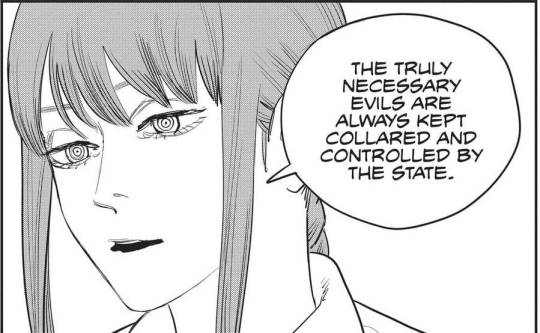
And she does mention with the country mice thing that she goes out to a friend’s farm every year! She has a human friend?? That she visits yearly and she genuinely likes it?? Ultimately she lives a busy city life because of her goal and drive and her urge & satisfaction with overseeing shaping the world herself, but part of her, like so many characters including Angel and Aki and Reze, wishes she could live a slow peaceful country life. Moviegoing and dogs and mice in a farm- Wouldn’t it be so much simpler if Makima could find fulfillment and happiness in being a farmer, in keeping control of her own farm, getting satisfaction from exterminating vermin and expertly getting everything right, the right crops grown at the right time on the right soil? Here, too, in a way it’s trying to have full control of an ecosystem, but her goals would be easier to achieve and better, without ceaseless sacrifice or much pressure. But Makima wants grandiosity and her goal does matter to her on a fundamental and moral level, she does think she knows what’s best for the world, and with the power to change it why wouldn’t she strive to? Visiting the farm is just a break, just something she does in fall to help out and just in time to see the vermin extermination. It calms her, then it’s back to actual work.
In capitalism, even the one at the very top of the ladder is ultimately alienated from others and often unsatisfied by their lifestyle, always wanting more and more power because surely that’s the extra edge they must be missing to be content— like how Makima thinks she wants to dominate Chainsaw Devil instead of being his equal. And she says it herself too, she likes humans the way humans like dogs…….. And she keeps so many dogs :( Makima prefers the country mice because they’re calming to root out, maybe because she usually mainly deals with city mice. It’s very easy to equate humans to the mice in this allegory because it’s pretty direct and she’s already likened humans to lesser animals compared to her. She’s self-isolating by design for her design but she still craves relationships and contentment, and the dogs are the embodiment or her want for bonds and occasional simplicity because there is no possible ulterior motive, no way they tie back into her wider plan. They’re her personal life— something that feels so alien when speaking about Makima. Personality and individuality and likes and preferences and friends they visit every year. She likes how easily she can train a dog and how they become putty in her hands, at her beck and call, how much they love her and how much she enjoys their love. How simple and straightforward and easy it is. She keeps them because she likes being loved by them and loving them, and she’s gotten and raised so many. A conqueror always wants more and more and more, is never satisfied.
Devils and agency
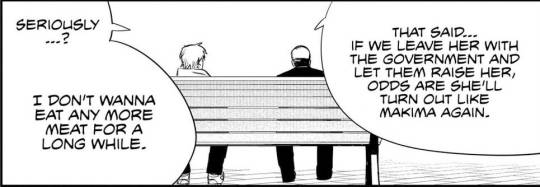
Like Power the blood devil wanting blood and having a fixation on drinking it like with Denji’s, or how it was shocking that the violence devil was pretty tame and nice and how he himself theorized it was because he was a fiend and possessing a human body… There’s something to be said about nature vs nurture with the devils. The way they reincarnate and always embody their fear makes it seem categorically like nature, that they always always end up fulfilling the role they were named after and born to fill… Outside influence they’re helpless but to conform with. Like the humans accepting their spot in the social ladder and the shittiness of their living conditions and job under capitalism. Makima craved being equals with someone despite being the control/conquest devil, Angel Devil despite claiming to be a devil who likes to see humans dying was haunted by their deaths and wanted to avoid ones like Aki’s. The Ghost Devil being ironically haunted by Himeno, seemingly helping Aki in her memory out of… Lasting affection? Or maybe it was less about being haunted itself and more about it recognizing how Himeno haunted Aki, and acknowledging that, with the memento, paying her respect to the ghost of her. It’s Angel Devil’s devil nature that makes him like human suffering, so then is it his angel nature too to still care about their deaths? Is there truth to this or is that just personality, just our confirmation bias haunting every part of their identity like it might in their own view of themselves too? We do know different reincarnations of devils do have different personalities after all.
Yoru, war devil, is the most interesting one when talking about the nature vs nurture debate with devils. There is how through her we see the perhaps the most the consequences of a devil stopping being feared— we see a horseman for a concept as universal and horrifying as war be reduced to some bird who needs a contract with a human to have any power even just on the situation when meeting Asa. And through the story we get to know her better, and it becomes clear that her goal is fueled in good part by simply wanting to be remembered and respected through fear. Liked, validated, seen a powerful. But what is more isolating than war? Or control? We also see Nayuta accepting others’ house rules. If part 1 shows perhaps the futility of running away from the truth, with Denji’s memory, with escapist coping mechanisms, with passivity and denial under a corrupt system and with abusive relationships- running away from your own feelings and from the reality of things and from all that you are, more complex than simply human or devil or both or neither— part 2 builds upon the theme of cult of personalities, the chainsaw church, etc. The apocalypse is coming, but this celebrity superhero might save us all, or doom us all uh, dunno. The hero of hell reliving the cycle of pressure from responsibilities and expectations, maybe the part will end with Denji running away like Pochita did~
But yes, on the reverse, I think Famine is a very interesting example of how a devil’s namesake may be more innate than coerced by circumstances. One would think that a famine devil would only like inflicting famine upon others, not being famished itself, but Famine has a bottomless stomach that can never, ever be satisfied, sated. I struggle to find a psychological explanation for this, except that maybe instead of her being hungry it’s her feeling empty when she’s not eating, tasting and having that high sensory experience that releases serotonin in humans, sort of like drugs? But I do take this as a step towards the compulsion theory overall, feels like a reach in the consistency otherwise. And compulsion does not mean it’s something that they like nor that it’s something that they fight against, pretty neutral, just a nature that nudges you towards one path. Maybe it’s even just their go-to for entertainment. Maybe it’s the only thing that makes them feel right and whole. But still the debate remains, what is it, a compulsion or an urge or an itch or an active desire or a conscious chosen want? Does it change anything in practice?
And because of all of this earlier, devils being self-fulfilling prophecies with their role is not in unsignificant part nurture, because doing their atrocities is how they stay remembered— feared, powerful, known— hell and devils are a very isolating place and breed after all, and we do see devils can want companionship. Existentially, it’s their purpose and how they justify their place in the world, in the terrifyingly vast and unknowable cosmos.
We still know so little of what makes Chainsaw Devil so special, why his carnage is so self-controlled. Despite a chainsaw maybe being possibly one of the most "nature" thing you can be— a tool to cut things, a human tool that can be helpful for many things, something to be wielding by another at their judgement on what they decide, but mainly something to cut, a tool suited for carnage, to hurt and to destroy. A blade with a toothed chain, spinning around and around and around endlessly on the same road at the same pace. Such a…. Innately circular concept. And yet the Chainsaw Devil is his own, not driven by an urge or by chaos but his very own brand of order, his own unique assigned purpose, a "if you call i’ll come running to help" policy equalizing everyone. He chooses to withhold his destruction and interference otherwise, and then he chooses to be used. If it’s a choice, of course.
Maybe this is what inspired Makima so much, that Chainsaw Devil could decide what to make of himself despite expectations or innate role. Because even Hell he decided & managed to subjugate under his will and whim, with a precise vision and process. When Chainsaw Devil acts like Denji or is defeated, Makima clicks her tongue and loses her admiration and respect. Makima admired and liked Chainsaw Devil, but only as long as he matched her great image of him in her mind, as long as he followed he rules for what she thinks he should be like. She admired him for his unrivaled self-made success, but once he stepped out of that to truly embody self-fulfillment and agency, disappearing from hell to live on his own road at the beat of his own drum… Well. Surely that was a mistake she has to correct. However their second battle ends, the better conqueror will have prevailed and she’s happy about that, all in the spirit of domination and subjugation.
Imo Makima’s biggest tool, similarly capitalism’s most helpful effect for its own purposes, is complacency. Resignation and passivity helps uphold the system and go along the flow of the will of the people in power. Aki and Reze go along with orders even when knowing their job is trash, etc. In Angel Devil especially we see him go along with the flow uncaring about anyhing, and we discover it was in part due to Makima taking away memories that motivated him. If every devil decides this is just how things are and how things should be that’s what they’ll continue to be and do mindlessly, not pursuing a better life like Chainsaw Devil and Denj and not seeking to change the world like Makima. I think even Makima veils herself to a lot of things, she doesn’t like to think deeply about some things, like her desire for connection, or how making bad movies disappear is strenuous and unsustainable and requiring sacrifices at best— how her judgement is as subjective as anyone else. How liking the country mouse and her friend back at the farm and her dogs could be not devoid of sentimality. Wanting bad movies erased is her one biggest show of selfishness, of pettiness and individuality, it’s about her tastes, simple as. About how she can have tastes, and cry seeing a scene of people hug, and want things that aren’t logical, her ideology and mind twisted into a pretzel to avoid acknowledging that she doesn’t live and breathe purely for the mission she’s made a single-minded robot out of herself to accomplish. Nayuta is assertive and selfish and loud, Makima is manipulative and strategically both for her goals and for coping hollow.
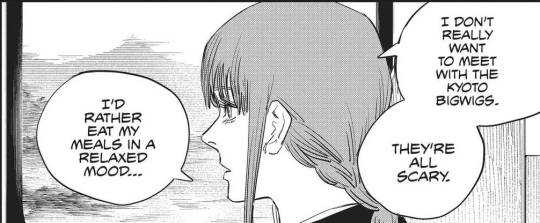

Everything in her plans and goals she says is for the greater good, necessary evil, manufactured happiness the way she’ll have decided for people— and that’s the thing isn’t it, like with War, it’s the crack that shows it was all truly about herself after all. Her self-made deification still had the flaw that a self made it. Makima is not omniscient, and it’s not Chainsaw Devil the not-so-fellow-kindred-soul conqueror who gets the best of her, but a city mouse, a dog, someone she would have never thought to respect, Denji.
#Fumi rambles#Chainsaw man#makima#analysis#meta#The goal is moreso me dropping thoughts than being flawless on every aspect of the lore so if and when i get things wrong b merciful….#Maybe her liking of control is why she remembers the ww2 authoritarian fascists. I don’t want to say the word jic for tumblr search#Pity is never a factor When mercy is a sign of a talentless actor#And as you grow its hold on your throat starts to falter And once you go beyond pure humanity's border#You will come back like a dooooog 😭#This’d be a different topic but. I don’t think makima likes denji as much as one of her dogs. If so i’d say it was in the moments where#she brought him to movies but even then….. i think she has more fondness for her dogs bc w denji it was indifference and derision#I love you please humiliate me / strip my dignity and laugh my honey#God. God i’m fine. I’m so okay about csm#Makima has a cryptic but strong sense of morals?? That doesn’t align with ours obvi but#‘Someone like you has no right to wish for a normal life do they?’ What do you meannn what do you meannnnn#What is this contempt for denji. Does she see herself as moral or part of those that are city mice bc they’re undeserving of a calm life???#Maybe famine only feels fed on humans and their blood 🤔 or their fear. man idk idk idk idk but i wanna see more of her quirks#And before someone says ‘but every demon likes to drink blood’ power is especially fixated on it tho cmannnn#Did Angel lie when he said he liked seeing humans die?? Did his haunting thing become worse after meeting Aki?? Did he suppress it#because he feels like he doesn’t belong as a devil??? bc he’s suppressing his memories of the villagers he cared about??#Has he just been trying so hard not to care for so long. Passive bc he thought that’s all he could or should be#AGHHHHH#Spoilers#There’s a lot more i’d have liked to touch on like the popular theory that Makima was *raised* by the government#and i’ve seen a take that the ‘my friend at a farm’ thing is all euphemism from makima about her troublesome human killing job ykyk#but i think the phrasing is too literal and natural for that. The snow and soil talk everything. It’s a perfect allegory but it can be both
55 notes
·
View notes